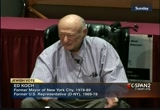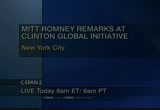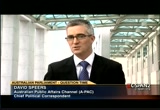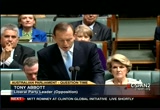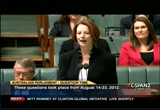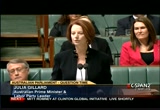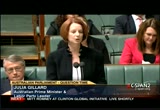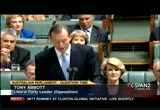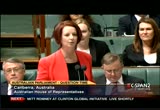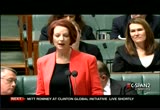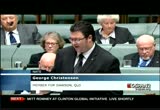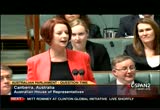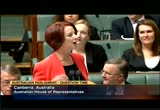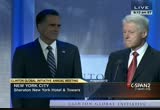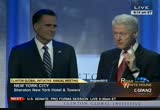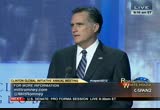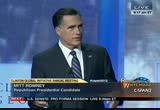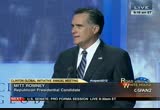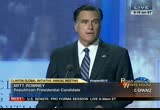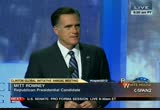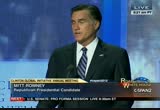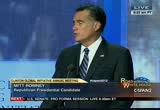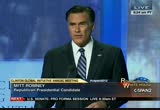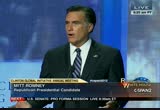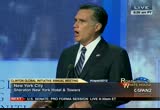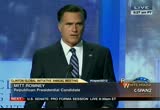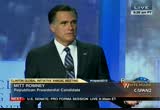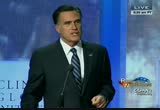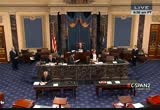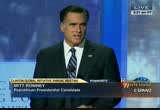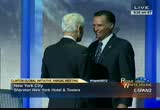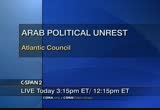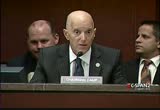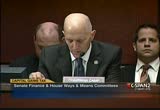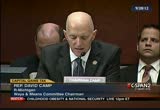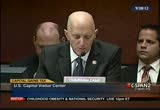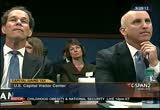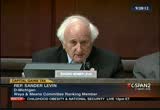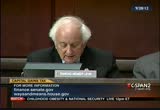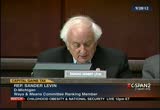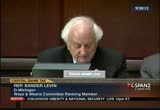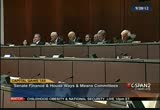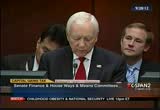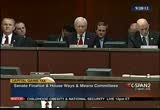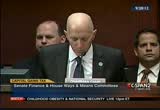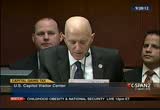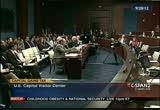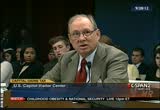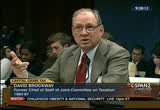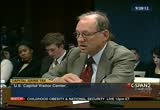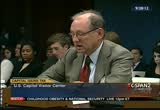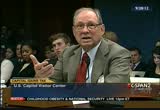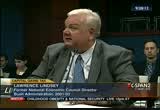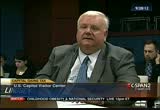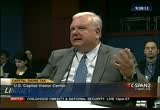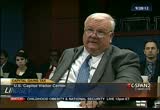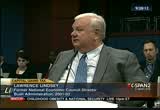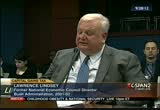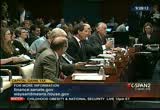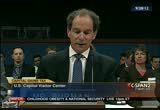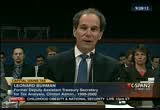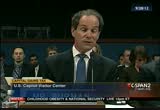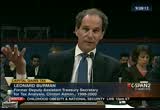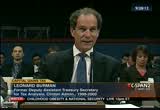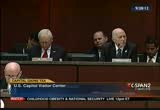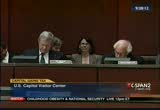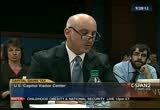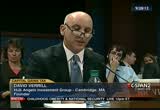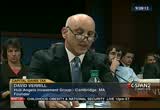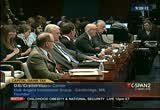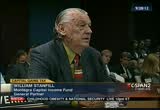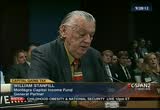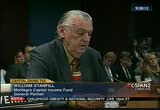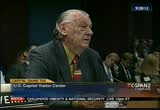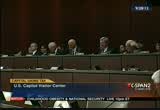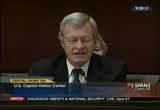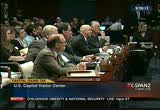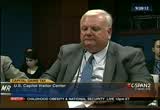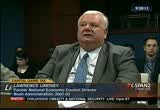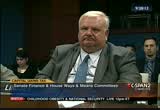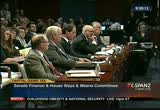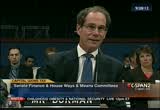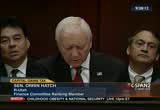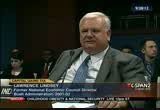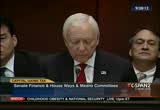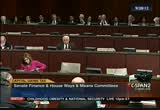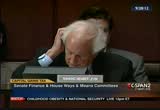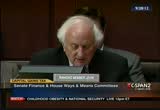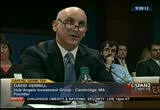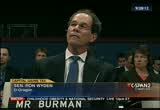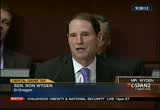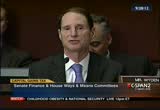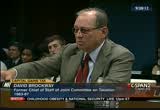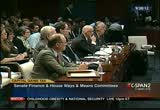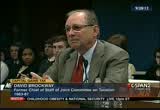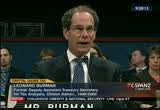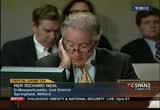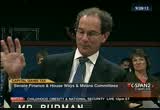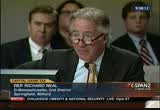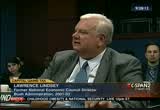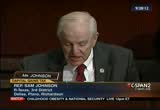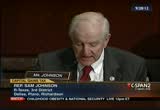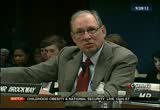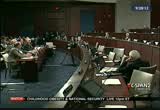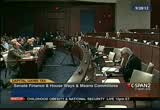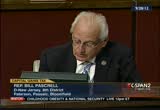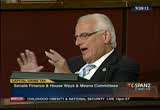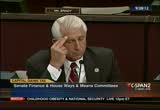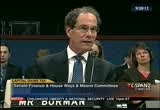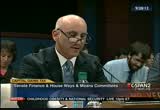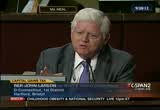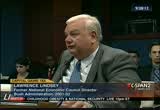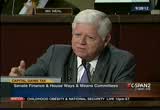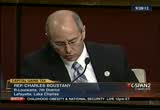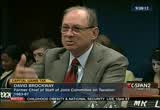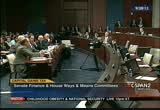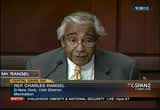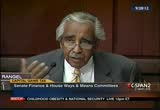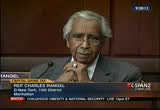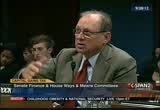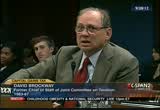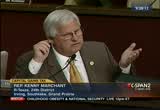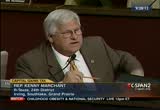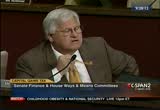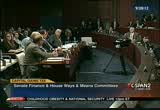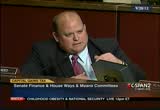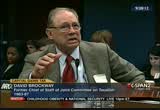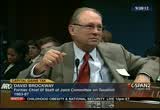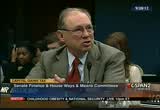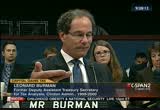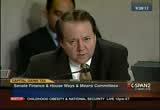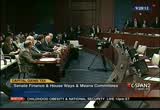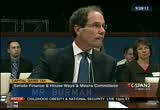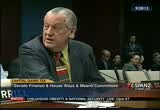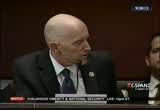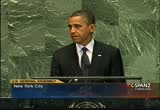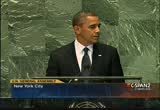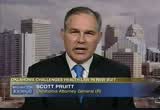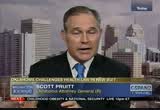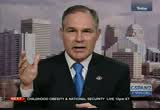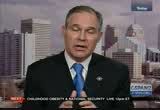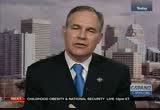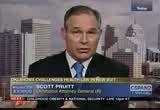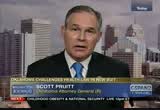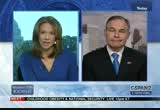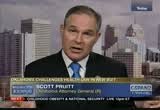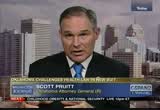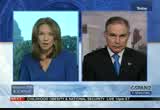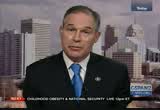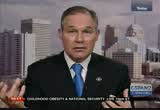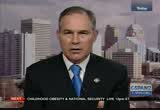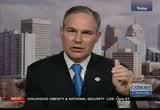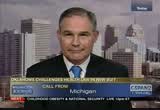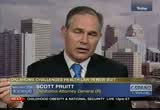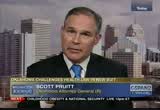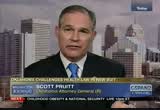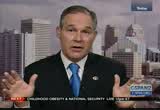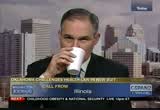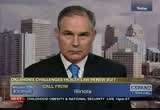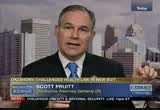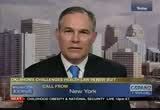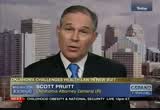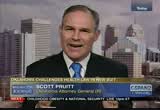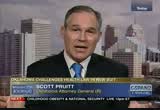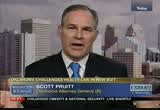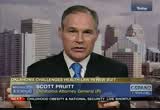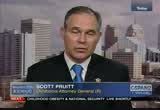tv U.S. Senate CSPAN September 25, 2012 9:00am-12:00pm EDT
9:00 am
wheels. thank you. >> congressman? >> well, to even debate the efficacy of the u.n. is a waste of time. they are a colossal failure. [applause] this is the league of nations, review its -- we've had some successes in humanitarian aid and some peacekeeping. beyond that, this is an enormous propaganda machine against us and against western civilization. and we are to recognize it as such. thank you. >> with that final word, we want to thank the former mayor koch and congressman turner. [applause] spend always a pleasure. >> thank you all. you are very kind, thank you.
9:01 am
>> shortly we will go live to new york for coverage of republican presidential candidate mitt romney. you speaking this point at the clinton global initiative, an annual meeting of global leaders seeking solutions to international problems. mitt romney will be introduced by former president bill clinton and so. it is expected to get started shortly and we will have a live for you on c-span2. until then highlights of the august session of question time in the australian parliament. ♪ >> hello, i'm david with some highlights of the last sitting of the australian parliament. one of the issues that is been talking the labor, here in australia is asylum-seekers.
9:02 am
they been coming in record numbers on leaky boats and some sadly have been drowning at sea trying to get here. the government has been under a lot of pressure from the opposition to take a tougher policy to deter votes from making history. finally, the government act down and embraced the opposition's policy. after it was recommended by an expert panel. i asylum-seekers will now be sent to the tiny pacific country of not move and an island. have the claims process. rather than on shore here in austria. it's what the opposition wanted your but opposition leader didn't let the government get away without reminding them of the political backflip they have just done. >> are there any questions speak with my question is to the prime minister. and i thank the prime minister for finally a docking one element in the coalition's border protection policy. namely offshore processing. and i ask when will she a doubt
9:03 am
the other two elements in our policy, namely turning boats around where it is safe to do so and protection bases that are also necessary if we are finally to stop the votes? >> the prime minister as the call. >> thank you very much, deputy speaker. and to the leader of the opposition's question. the government has endorsed in principle the recommendations of this report. a report put together by three very eminent australians, by angus houston, a former defense, by michael, a former expert, by paris aristotle, an expert in refugee and asylum seeker issues. it is this that has guided the government and i want to take this opportunity to thank those three and it australians for the work. now, yesterday of course we saw people out on the politics climbing with the scoreboard was
9:04 am
out of this report. the truth is out this report that for every political party in this parliament, including the government, including the opposition, ethics of this report and doors parts of the policy, that is the truth of this report. i say it think about the things the government has advocated it is also true about the things that the opposition has advocated. now, deputy speaker, that is the conclusion of angus houston's panel and its work. and i think it is incumbent upon us and now to put those political scoreboards and that point making a side to put aside the shouting and the rhetoric that is characterized this debate, and to actually get on with the job of an acting the recommendations of this report to answer the government will
9:05 am
come later today, introduce amendments to the legislation already on the notice paper, the government's bill to amend asylum-seekers and refugees law. we have had this morning good safe discussions. the member has the gall. >> deputy speaker, my question is to the prime minister. prime minister, why did the government abolished offshore processing on the rim for years ago? >> the prime minister has a call. >> thank you very much, and to the member who asked the question who is of course former minister for immigration and concertgoers with a great deal of experience in this policy area. he is aware that the government was elected to government with a set of policies about offshore processing and the treatment of refugees and asylum-seekers which he did not agree ith. [shouting] that is a matter of -- >> order. the prime minister, the prime
9:06 am
minister will resume. >> my question is to the prime minister. i remind the prime minister, her statement that labor will and the third call to solutions because it is costly, unsustainable and wrong as a matter of principles. given that are expert panel disagrees and labor will now restore offshore processing, will she now apologized for her policy failure that led to 1000 dead, 20,000 illegal arrivals and a $4.7 billion cost blowout? >> the prime minister has the call. >> thank you very much, deputy speaker, and to the deputy leader of the opposition. council to study this report in detail. what you'll find when -- [inaudible] it is not saying to us just exactly reviewed what was done in the past. it is not think that. she's consequently doodling the
9:07 am
eminent australians who put this together and i suggest she apologize for that. >> with the asylum seeker issue seemingly put to bed, the opposition returned to its favorite topic, the carbon tax which the labour government recently introduced in austin. the opposition supports it. it once it's scrapped. its efforts to attack the prime minister over this policy had some rowdy scenes in parliament. >> the leader of the opposition has the call. >> my question is for the prime minister and i refer her to this letter from australian country choice that indicates that it is now paying a carbon charge of an extra 38% for each electricity, and extra 86 are sent for off-peak electricity. that's an extra $10,400 a week because of the introduction of a carbon tax. why are not businesses like this one being compensated for the
9:08 am
prime minister's broken promise that there will be no carbon tax under the government? >> the prime minister has the call. >> thank you very much, deputy speaker, and to the leader of the opposition's question, he said quite a morning has been. is not only gone out to threaten to cut -- [inaudible] he is counseling on electricity prices. and he has said today it's to the carbon tax is not the only factor in the dramatic rise in power. complete -- [inaudible] compared with the statements in the run that department, but everything else except carbon pricing was -- >> the leader had smacked into the rally that they don't i go with them, experts don't agree with them. the regulars don't agree with them. members of his own teams don't agree with them, and he has finally come clean that yet the dramatic increase of power prices are not about power
9:09 am
prices, they are about -- -- >> the member has the floor. spent i thank you, madam deputy speaker. my question is to the prime minister. i refer the prime minister to jeffrey thomson holdings, a pear grower in my elected. whose latest electricity bills show a new item, carbon charges. carbon charges of 23,000, for the month of july a loan. $3000. this new carbon tax cannot be passed on, and there is no compensation. how does this government expect a 60 year old businessman to survive, and the 400 regional jobs resumed? >> the prime minister has the call. >> take you very much, deputy speaker, and to the member who raises the question. as them and would be aware, we have always said that carbon pricing, the price would be paid by -- there would be an impact
9:10 am
on electricity pricing, the member yelling out is agreeing with me i see. that we've been very clear about what the impact would be. and the modeling has been proved to be right. and for small businesses who are not required to directly pay the carbon price, who are not required to fill in any additional forms, unlike the paperwork burden that came their way with the house of government number but outside the carbon price, they are not filling out additional forms, they will see some flow-through impacts with things like electricity prices which is why we put consumers in a position that they can pass that on and consumers with the tax cuts, the family payment increases, and -- >> member has the call. >> i refer the prime minister to the statement by the parliamentary secretary climate change and the carbon tax debate
9:11 am
last week that quote farmers will not pay a cent. how does she reconcile his statement with this letter from a tomato farmer who said this will increase the annual bill for cardboard boxes used on his family run tomato farm by more than $12,000 due to the carbon tax? >> the prime minister has the call. >> thank you very much, deputy speaker, into the member who asked the question, the parliament or secretary would've been making the simple point that it is only big businesses that generate a lot of carbon pollution, thousands and thousands of pounds of carbon solution. that's the point he would have been drawing out in that debate. to the member who was continuing his question, what we are seeing today is, you know, opposition determined to continue its smear
9:12 am
campaign even day by day by day the facts are proving this smear campaign wrong. price rises were going to be unimaginably large. that's wrong. electricity bills were going to skyrocket, even the leader of the opposition has actually not -- spent and as osha's about to say, the member who asked the question doubled the funding for school education. that funding is ending. the way in which the index works is it takes into account increases like the increase flowing through the -- flowing through the electricity prices, taking into account in the index. i wonder if the member has ever got the new state, on the side and asked him about the impact of the 70% increase in electricity prices that will have hit the school in his electric.
9:13 am
>> you can see the rest of this parliament question time at our website, c-span.org. live now to republican presidential candidate mitt romney speaking this point at the annual clinton global initiative conference at the international leaders. introduced by former president bill clinton. >> good morning. [applause] good morning. i want to begin by thanking governor romney to coming here today. i think this is really important. all of you who are there last night, if we can't find ways to cooperate over these issues, we can't find it anywhere. this is really important. and i thought i would introduce him by giving you an example of one personal experience we had together. when i pass the americorps legislation and signed it through congress, the model for me was a program based in boston called cd year.
9:14 am
which -- [applause] a lot of you know about it. it's a great program. when i left the white house there was some discussion about whether americorps would be defunded. and by that time the largest affiliate in the united states was city year. the governor of massachusetts, mitt romney, was on the board. and then send me a letter saying, michael brown is nodding his head, sent me a letter saying, with 49 other, 40 other governors, we should continue this. this is important. so i called him and i was out of the white house and i said governor, i love city year. that's what americorps is all about. i hope you'll help me save it. and he urged the republican congress to continue to support city year, and he urged the white house to do it. and they did. i just visited a city year program in south africa, johannesburg, where the youth
9:15 am
unemployment rate exceeds 40%, but 80% of the city year volunteers in johannesburg had a job that day they leave city year. so it turns out to be good economics as well as good for the society. all of you should know that, and i wanted you to know what. and, governor, i thank you for being here. the podium is yours. [applause] >> thank you, mr. president. it's an honor to be here this morning. and i appreciate your kind words, and that introduction is very touching. if there's one thing we've learned in this election season by the way, it is that a few words from bill clinton to a man on a lot of good. [laughter] [applause]
9:16 am
>> all of god to do now is what a couple days for that bounce to happen. -- all i've got to do now is whether couple days for that bounce to happen. since serving as president president clinton has devoted himself to enlisting people around the world. one of the best things that can happen to any cause, to any people is to have bill clinton as its advocate. and that's really true for a whole series of causes, but particularly for the needy and neglected causes. if he gets behind and it makes a real difference. and it's that kind of work that brings us together today, and i appreciate your willingness to spend time and to listen to those that are coming with their messages. there are a number of things that impressed me about the global initiative and one of them is as i see it from afar i've been impressed by the extorted power that you do right by harnessing together people of different backgrounds, institutions of different backgrounds and persuasions. you have been able to fashion partnerships if you will across the judicial boundaries, public
9:17 am
and private, for-profit, not-for-profit, charitable, commercial. on a smaller scale by the way, i seen the power of partnerships like this work before. in massachusetts bill clinton just spoke about city year. i have right of your michael brown, one of the founders. this was an effort where to social pioneers, michael and his friend, alan casey, brought corporations and government together with volunteers to form this entity. and it was the model as the president said, for americorps. and that actually happened to be there at the first time he visited city year. he was their investigation the life-changing successes, which were being reported in the lives of these young people that come together for a year of service. and as they were linked with corporate teams that worked with them. i also saw the power of these kind of partnerships in 2002 when i was asked to be the head of the olympic winter games in salt lake city. i saw what could happen when very disparate elements of the
9:18 am
community were willing to join together an extraordinary unity. and were able to overcome challenges that many that would be impossible for an organization like ours to overcome. the clinton global initiative has also demonstrated the effectiveness of entrepreneurship, and social enterprise. you and ever not only to comfort and assuaged the pains of the afflicted, but also to change lives, change lives through freedom, through free enterprise, through entrepreneurship and through the incomparable dignity that is associated with work. free enterprise as we know has done more to bless humanity than any other economic system. not only because it's the only system that creates a prosperous middle class, also because it's the only system where the individual enjoys the freedom to guide and build his or her life. free enterprise cannot only make
9:19 am
us better off financially, it can make us better people. ours is a very compassionate nation, as you know. we look around the world and we see with ring suffering, our hearts break. though we make up only 4.5% of the world's population, we donate nearly a quarter of all global foreign aid. more than twice as much as any other nation on earth. and americans give more money. pastors lead mission trips that send thousands of americans around the world bringing aid and comfort to the poorest places on the planet. american troops are the first in the scene of a national -- natural disasters an earthquake strikes, in haiti and care packages come from all over the world but they come first from america. and not far behind of course our presidents clinton and bush. but too often our passion for charity as a people. is hampered by our sense that our aid is not always effective.
9:20 am
stories of cases where american aid has been diverted to corrupt governments. we sometimes wonder why year after year after year of aid and relief team to never to extinguish the suffering and hardship. why it persists decade after decade. perhaps some of the disappointments are due to our philly to recognize just how much of the developing world has changed. a lot of the foreign aid efforts that we put in place some years ago were designed at a time when government development assistance, accounted for about 70% of the resources flowing to developing nations. today 82% of the resources that flow to developing nations come from the private sector, not the governmental sector. is somehow foreign aid can we leverage that massive investment by the private sector, it may be able to exponentially expand the ability to not only care for those that are suffering, and also to change their lives in a
9:21 am
permanent basis. now, private enterprises having a greater and greater impact action on its own in the developing world. it's an example that john deere company embarked upon a pilot project in africa were developed a suite of form tools that could be attached to a very small tractor. then the company worked to expand the availability of capital to the farmers are there so they could maintain and develop their own businesses. the result is that a good investment for john deere, and a greater opportunity are african farmers who are now able to grow more crops, and provide far more plentiful lives of their own. for american foreign aid to become more effective, it's got to embrace the principles that you see in these global initiatives. the power of partnerships, access to the transformative nature of free enterprise, and the leverage of the abundant resources that can come from the private sector. now i believe that there are
9:22 am
three quite legitimate objects of our foreign aid in this country. first of course is to address the humanitarian needs. such as the case with a far, which is given medical treatment to millions suffering from hiv and aids. second is to foster a substantial united states strategic interest, perhaps its militant, diplomatic or economic. but third is another purpose, and one that i think have to receive much more attention at a much higher priority, in the romney administration. and that is aid that elevates people and brings about lasting change in communities and nations. as an example, a lot of americans, including myself, are developed -- excuse me, are troubled by developers in the middle east. syria has witnessed the killing of tens of thousands of people. the president of egypt is a member of the muslim brotherhood. our ambassador to libya was assassinated in a terrorist attack.
9:23 am
iran is moving toward nuclear weapons capability. some of you that we are at the mercy of events rather than shaping events. i'm often asked why, what can we do about it, to leave the middle east to stability and ease the suffering and anger and the hate and violence? obviously religious extremism is certainly a part of the problem, but that's not the whole story. the population of the middle east is very young, as you know, particularly in comparison with a population of the developed nations. and typically these young people, as the president indicated a moment ago, don't have a lot of job prospects. the levels of youth unemployment across the region are excessive and chronic. and in nations that have undergone a change in leadership recently, young people have greater access to information. in the past that was being carefully guarded by tyrants and dictators. but now it's available.
9:24 am
they see the good as well as the bad in surrounding societies. they cannot organize across vast regions, mobilizing populations. idol, humiliated by poverty, and crushed by government corruptions, their frustration and their anger grows. in such a setting for america to actually change lives, to change communities of nations in the middle east, foreign aid must also play a role him and the shape that role should play was brought into focus by the life and death of -- the street vendor who self-immolated and who sparked thereby the arab spring. you probably know this background, but it touched me. he was just 26 years old. yet provided for his family since he was a very young boy. he worked in a small fruit stand
9:25 am
selling to passersby. a regular harassment by corrupt bureaucrats was elevated one day and they came in and took cases of his fruit and then they took away his weighing scales can his only real capital equipment, away from them. on the date of this final protest, witnesses say that an officer slapped him and he cried out with these words. why are you doing this to me? i am a simple person. i just want to work. i just want to work. work. that has to be at the heart of our effort to help people build economies that can create jobs, young and old alike. work build self-esteem. it transform minds from fantasy and fanaticism the reality and grounding. work does not long tolerate corruption. nor will it quietly endured the brazen theft by government of
9:26 am
the product of hard-working men and women. to foster work and enterprise in the middle east, and other developing countries, i'll initiate something i will call prosperity pacs, working with the private sector, the program will identify the barriers to investment, trade and to into a partnership and entrepreneurialism, in developing nations. and in exchange for removing those barriers and opening their markets to u.s. investment and trade, developing nations will receive you as assistant packages focused on developing the institutions of liberty and rule of, property rights. we will focus our efforts on small and medium-sized business is. microfinance has been an effective tool of promoting enterprise and prosperity, but we've got to expand to small and medium-size businesses as well that are oftentimes too large for microfinance and too small for traditional banking. the aim of a much larger share of our aid must be the promotion
9:27 am
of work, and the fostering of free enterprise. nothing we can do as a nation will change lives and nations more effectively and permanently then sharing the insights that lies at the foundation of america's own economy. and that is that free people, pursuing happiness in their own ways, build a small -- strong and prosperous nation. when i was and is as i travel to a number of countries. i was often struck by the vast difference and wealth among nations that were sometimes neighbors. some of that was of course due to geography. rich countries often have natural resources like mineral deposits or access to for transportation. but in some cases all this into separate our rich country from a more poor one was a faint line on the map. countries that were physically right next-door to each other were in some cases economically
9:28 am
world apart. you can think of north korea and south korea. i became convinced that the critical difference between these countries wasn't geography. i notice that the most successful countries shared something in common. they were the freest. they protected the rights of individuals. they enforced the rule of law. they encouraged trade and enterprise. they understood that economic freedom is the only force in history that has consistently listed people out of poverty, and kept people out of poverty. look, a temporary aid package can give an economy a boost. it can fund projects, it can pay some bills, it can implicitly before a time, but it can't sustain an economy, not for the long-term. it can't pull the whole card if you because some point the money runs out. but an assistance program that helps unleash free enterprise can create enduring prosperity. free enterprise is based on mutual exchange, or rather
9:29 am
millions of exchange. millions of people buying, trading, selling, building, investing. it has its ups and downs. it is imperfect. it's more reliable, however, and more durable. and ultimately as history has shown, it's more successful. by the way perhaps the best example of the goods a free enterprise can do this by looking at the example of the developed world itself. my friend, arthur brooks at the american enterprise institute, he has put out that before the year 1800, the living standards in the west were appalling. a person born in the 18th century lived essential as his great, great, great grandfather. life was overwhelmed with disease and danger. and early death. but starting in 1800 the west began to centuries of free enterprise and trade, living standards rose. literacy spread.
9:30 am
health improved. in our own country between 1820-1998, real per capita gdp, real per capita gdp increased 22 fold. as the most prosperous nation in history, it's our duty to keep the engine of prosperity running. to open markets across the globe and to spread prosperity's biggest we will leave his remarks now for a committed live coverage of the u.s. senate. senators meeting in a brief pro forma session this morning. we hope to return for the minute of governor romney's address. now live to the senate. the presiding officer: the senate will come to order. the clerk will read to the senate. the clerk: washington, d.c., september 25, 2012. to the senate: under the previous under the provisions of rule 1 paragraph 3 of the standing rules of the senate i appoint the honorable christopher a. coons, a senator from the state of delaware, to perform the duties of the chair signed daniel k. inouye,
9:31 am
president pro tempore. the presiding officer: under the previous order, the senate stands adjourned until 10:00 a.m. on friday, september 28. today we face a world of unprecedented challenge and complexity. we cannot forget not far from here a voice of unspeakable evil and hatred has spoken out threatening israel and the entire civilized world. we come together knowing the bitterness of hate is no match for the strength of love. we can -- i will speak to these
9:32 am
challenges. and opportunities this moment presents us go beyond foreign assistance and describe also what i believe america's strategy should be to secure our interests and ideals in this uncertain time. a year from now i hope to return to this meeting as president having made substantial progress towards achieving the reforms i outlined but i hope to remind the world of the goodness and bigness of the american heart. never apologize for america. i believe america has been one of the greatest forces for good world has ever known. we hold that knowledge in our hearts with humility and conviction. god bless you and this great work. god bless my country and yours. thank you so very much. it is an honor to be with you. [applause]
9:33 am
[pause] >> thank you, governor. >> republican presidential candidate mitt romney at the clinton global initiative in new york. the address is on our web site c-span.org. president obama will make remarks at this conference at the 12:10 eastern and you will see it live on c-span. retired generals and admirals discuss the impact of childhood obesity on national security. we will hear about a report on improving the quality of food sold in schools to complement the efforts by parents to teach kids to eat healthy meals and snacks. it is hosted by mission readiness and begins live at noon eastern. this afternoon former secretary of state colin powell talked about the arabs spring and the role of the u.s. in europe enjoyed by foreign made a
9:34 am
general secretary xavier salona live at 3:15 on c-span2. >> i watch c-span every time there's a special event going on. i pay attention to c-span the most. any time something is going on i want to watch c-span because they have the best and most unbiased view. if i want a circle spin i watch the other programs. i watch c-span tv on line or if i want to know what is happening i turn to c-span. i don't know that i have a favorite show. for me it is always anytime i need to know what is going on i know c-span will have the real story of what is really happening. >> jaws trueitt watches c-span. c-span is brought to you as a public service by your television provider.
9:35 am
>> the first debate between mitt romney and president obama is next wednesday october 3rd. jim lehrer moderates from the university of denver. watch and engage with c-span including our live debate preview at 7:00 p.m. eastern followed by domestic policy debate at 9:00 and your reaction and comments. follow live coverage on c-span, c-span radio and online at c-span.org. >> a look at the capital gains tax rate and what could be the result of comprehensive tax reform. this hearing was held last week by the senate finance committee and house ways and means committee. this is about two hours. >> thank you for joining us for the third joint hearing of the house ways and means committee and house finance committee. our two committees have not met
9:36 am
for tax related hearings in more than 70 years. for this series of hearings as well as the ones held on our own and with the joint committee on taxation we had very productive discussions about steps we need to take to transform the broken tax code from one that hinders the one that fosters greater investment and job creation. after 43 consecutive months of unemployment over 8% we are in a jobs crisis and comprehensive tax reform is a part of achieving much needed economic growth. today's hearing focuses on capital gains and the context of comprehensive tax reform towards entire history. our income-tax system tax capital gains differently than other incomes. even in years following the 1986 tax reform act when capital gains and ordinary income tax rates were aligned we recognized capital investments raised specific tax policy questions and required various rules to distinguish between capital
9:37 am
gains and ordinary income. the maximum capital gains tax rate is 15% compared to maximum individual ordinary tax rate of 35%. the focus of this hearing is longer term view of capital gains as part of comprehensive tax reform we can't forget that congressional action to stop the impending tax hikes that year's end the maximum capital gains rate will increase to 25% and maximum individual ordinary income tax rate will increase to 40.8% when certain tax rate increases are factored in. the potential tax increases we face next year would have a devastating effect on the economy. according to the joint committee on taxation failure to enact a 1-year tax policy first enacted in 2001-2003 including an amt patch would result in a $384 billion tax increase. extending these policies on a permanent basis for republicans call for enacting tax reform consistent with historic revenue levels would prevent a tax
9:38 am
increase of $4 trillion over the next decade. those increased services remind that without action more revenue could be used to invest will be taken out of the economy. as we consider the economic impact of the tax burden associated with capital gains is critical we focus on the total integrated rate which is 45%. not just statutory rate of 15%. capital gains tax is a double layer of taxation. in the case of shared stock company's income is taxed at the corporate rate and shareholders decide to sell their stock subject to capital gains tax. the value of the stock already has been reduced by the fact that the corporation paid out of proportion of its earnings as taxes. even if we make current low tax policy permanent the top integrated rate on capital gains is 44.75%, 35% first layer of tax and 13% capital gains tax.
9:39 am
of recurrent policies to expire the top integrated rate on capital gains would exceed 50%. along the same line that is important to mention regardless of what rate will apply to capital gains we should strive to retain parity with capital gains and dividends and increase the effect of the world wide tax system imposed on foreign earnings and not restore domestic corporate earnings and make it more tax efficient retained earnings where it might be more productive to push the cash to shareholders to invest elsewhere in the economy. there are compelling reading this for capital gains but we all know there are important trade offs to be considered with each piece in the complex process of comprehensive tax reform. one of the main objectives of this hearing is to examine trade-offs in different from those lows for capital gains taxation. i look forward to hearing from our panel of witnesses and thank you for your time for coming today. i yield to my colleagues, the
9:40 am
chairman of the senate finance committee for his opening statement. >> thank you. appreciate this joint hearing. are believed in this partisan time we are so polarized that the facts count where we have hearings where we can ask factual questions of witnesses give as factual responses, not political responses and closer to reaching an agreement after the election leaguer's the lame-duck and following years. we ask questions slowly, perhaps painfully to help get to good results after the election. winston churchill once said a pessimist sees the difficulty in every opportunity. the optimists see is the opportunity in every difficulty. as we work and comprehensive tax
9:41 am
reform fecund capital gains is one of the most difficult issues we face. some are pessimistic and don't believe we can agree. i am optimistic we need to come together to find a workable solution. through that process there four considerations. first need to consider capital gains rates compared to wage income dividends. the tax rate capital gains is lower than the income. some say this is to avoid double taxation. most of the time the claim does go through. only a third of capital gains come from sales of corporate stock. the rest of never been taxed before reaching individuals. second we need to consider how capital gains rates affect different incomes. capital gains go disproportionately to taxpayers. last year capital gains represented half the income of the top 1/10th% of taxpayers.
9:42 am
low capital gains rates are the main reason many wealthy individuals pay a lower tax rate than middle-class families. third we need to consider the savings rates. americans save over their lifetimes. this is an opportunity to talk about the relationship between tax base capital gains and national savings. we must consider complexity. experts tell us half of the u.s. tax code, 20,000 pages exist solely to deal with capital gains. that complexity as well as the wide gap between tax rates and income capital gains invites people to use all kinds of shenanigans to gain the system. our entire tax code -- needs to be rebuilt for the twenty-first century. we need a system focused on
9:43 am
broadbased economic growth. i am glad to be joined by chairman camp and colleagues from the house but in order to get tax reform done we need members of both parties and both chambers to tackle these issues with an open mind. quince set aside our differences and listen. we see this as an opportunity. let's be optimistic we can reform the code and spark growth and do great jobs and strengthen our economy. >> thank you. let me yield to ranking member of the ways and means committee, mr. levin. >> welcome the witness, welcome the opportunity to have in this joint hearing and remember back when i was in state legislature we held a joint hearings and they were semi revolutionary. and i think it is a useful
9:44 am
approach. we all realize when it comes to tax reform it is integrated that in a sense almost every issue relates to every other issue but i will resist the temptation to use the integrated nature of taxes to talk about other issues including the difficult issues we are facing that divide us as to for example the taxation on high incomes. there's a new crs report that questions the argument that the high income tax break promotes economic growth. let me concentrate instead on this issue of capital gains. the issue is how to tax capital
9:45 am
gains will be one of the major and white fleet most controversial issues as we undertake tax reform. the reduced rates of long-term capital gains is one of the largest capital tax expenditures as we know adding up to hundreds of billions of dollars over a decade. it is also as mr. baucus said a source of considerable complexity. i noted in reviewing the testimony for this hearing that by some estimates for lee half of the tax code is devoted to finding the difference between capital gains and ordinary income. i am not sure it is half of but i remember our tax code in law school trying to wrestle with these issues and it took up half of the time. when there is significant capital gains preference there's
9:46 am
a lot of pressure on these rules because the greater the tax preference for capital gains the greater the incentive to ride -- try to reach characterize ordinary income as capital gains. for example the source of the battle over interest. it is useful to understand the issues around capital gains. that includes its history. we have mostly have a preferential rate. as we know the '86 tax reform eliminated it. it includes the various arguments from lot -- why you might want to lower rates. whether that is double taxation of corporate income, inflation, so-called lock in effect and an incentive to invest among others. it is also important to
9:47 am
understand the evidence about the different rationales and how they hold up to reality. as mentioned by the chairman of the finance committee most capital gains are realized by the highest earners. some 71% of the benefit, the preferential rate on capital gains goes to those making more than $1 million a year. according to the joint committee on taxation. there is a real consequence for the preferential rates as to the progressivity of our tax system. both our committees have to wrestle with these issues as tax reform move forward. so i look forward eagerly to this testimony and help folks that will help us to inform that process. thank you. >> i now yield to the ranking member of the senate finance committee senator hatch for his
9:48 am
opening statement. >> thank you for holding this joint hearing. 1921-1987 and after 1990 capital gains -- it is on. capital gains have been taxed at a lower rate than ordinary income. a number of justifications have been given why we have preferential treatment for capital gains. the lock in effect is given as a reason for preferential treatment for capital gains. since capital gains are only taken into account when realized by a sale or exchange investors can avoid paying the capital gains tax are holding on to capital assets. as a result the capital gains tax has a lock in effect which reduces liquidity of assets and discourages taxpayers and switching from one investment to another. another important reason for preferential treatment for capital gains happens to be a
9:49 am
low capital gains tax increase savings and investment. counteracts two levels of taxation of corporate income and corrects the income and tax laws against savings. next year and additional tax on capital gains is scheduled to go into effect. as part of a health-care law new 320% tax on investment income of single taxpayers earning $200,000, goes into effect. these amounts are not indexed for inflation and with scheduled expiration of the 2001-2003-2010 tax relief at the end of this year capital gains will be subject to a 23.8% tax beginning in 2013, 59% increase. the united states has the most progressive tax system in the industrialized world. to make it more progressive by raising tax rate on capital
9:50 am
gains. the top-10% of households pay 70% of all federal income taxes so when is enough achieved? 50 years ago a tax scholar wrote everything on the problem of capital gains has been said. i disagree. i think the issue of preferential treatment of capital gains is critically important with new evidence being generated as witnessed by the joint report of the staff of the joint committee on taxation and congressional budget office issued in june. we have a distinguished panel here with us today. i welcome each one of you to this hearing and we all have a desire to hear what these witnesses have to say. >> thank you. without objection any member who wishes to have an opening statement including formal hearing record may submit one in writing. we are fortunate to have a panel of witnesses with a wealth of experience in private practice
9:51 am
and academia and government. let me introduce them. i would like to welcome david brockway of the joint committee on taxation. during the process leading up to the enactment of tax reform act of 1986 and currently a partner in washington. second we will hear from larry lindsey of the lindsey group who served as director of the national economic council and the governor on the board of the federal reserve. third we will hear from the leonard burman the personal professor of public affairs at the maxwell school. dr. burman is former director of the urban and brooking stacks policy center. then we will hear from david verrill, founder and managing director of public angels investment group in massachusetts who recently assumed role of chairman of the angel capital association and finally we will hear from william stanfill, general partner of the integra capital income fund and trail head ventures. mr. stanfill has been in the investment business for 40
9:52 am
years. thank you for being with us today. the committee received each of your written statement that they will be part of the hearing record. each of you will be recognized for five minute 4 or 0 remarks. we begin with mr. brockway. you're recognized for five minutes. you can turn on your microphone. >> does that do it? >> that helps. >> i am a strong advocate of comprehensive tax reform and commend congress for thinking about this issue. i am not here to advocate comprehensive tax reform or any particular treatment of capital gains. i am here more to discuss my experiences in 1986 legislation and impact is likely to have and treatment of capital gains in comprehensive tax reform. you have a great witnesses here
9:53 am
9:54 am
neighborhood higher leverage to the conclusion congress did that overall the benefits of comprehensive tax reform outweigh the detriment of raising the tax rate in capital gains is not sensible to move forward. in any event the design constraints in 1986, it was not possible at that time to reached a reduction in the top rate on ordinary income to 28% without increasing capital gains to that level. raising capital gains to that level was absolutely not an objective in that process. both houses had great resistance to doing that. it was the only way the legislation would move forward under the constraints they were
9:55 am
operating in. those constraints, distribution of neutrality, there was a significant shift in tax burden off of the individual sector and corporate sector. we raise $20 billion a year from the corporate sector and used that to subsidize reduction of individual tax rate might be an order of magnitude something like $40 billion a year. fairly large shift. and design constraints were governed by the estimating conference both distribution analysis and revenue analysis using traditional revenue estimating methods. they did not take into account any potential change in overall performance of the economy that legislation might produce. they assumed the economy would be the same level in the cbo
9:56 am
baseline. those constraints were consciously designed and executed as a time out from partisan ideological struggles in regard to the size and role of a federal government and for want of a better term class warfare issue we are facing in that point. obviously there are still issues today but without that time out it would not have been possible to secure the bipartisan support necessary for that legislation to pass either house. i recognize what you are hearing this morning is designed to focus capital gains, not design constraints of overall comprehensive tax reform but to my view that keeps the entire process and was the key to the tax treatment of capital gains
9:57 am
in that legislation. obviously the situation you are dealing with today is different in a number of respects and adopt whatever design constraints of for free for this context but my suspicion is the forces that caused those design constraints in 1986 would be the same today. much tougher time of it this time around. you have to make a decision whether to look at current policy for current law setting revenue targets and distribution target and the distribution target may be more important than you have to answer the question whether to do dynamic revenue scoring that was not an issue that was front and center and at the end of the they have to decide what you are looking at changes in the world of tax burden, income classes where you look at the changes and relative
9:58 am
after-tax income and thinking of taxation of capital gains and dynamic scoring and have to ask for question are people relatively in the same position after-tax as they were before or not? not what the charts show about how much tax each income group pays. >> time has expired. thank you very much. dr. lindsey, you're recognize. >> i would like to thank both committees. it is very important. i think we need to put this in the economic context. given the hole we are in in this country our whole focus should be making america the best place in the world in which to invest and start a business and create jobs and -- there is in that context a strong relationship between the rate of tation and
9:59 am
the level of economic activity. i would like to discuss that. not as strong as some believe. it is stronger than many believe. i would like to point out the revenue collected capital gains taxation depends not only on the capital gains tax rate but tax rate on ordinary as well and those are the three thought i would like to leave you with today. let me begin with the effect of taxation on hundred for northship and job creation. as chairman camp pointed out the effect on taxation and capital gains is not taxation on capital gains but capital income. it is one tax levy on top of another tax. moreover if you look at the way we tax other types of capital in, as such as dividends we will be having effective tax rate on
10:00 am
capital income over 60% next year. frankly that is the preposterously high rate of tax for a country that wants to compete on a global economic basis. we have to consider a way around it. that said i understand the trade offs between capital gains taxation and ordinary income taxation and tried to come down on the side of bringing them together on balance raising capital gains rate and taxing other forms of income. in doing that we need to keep in mind the experiment we are going to be running but running backward. we did some extensive work in 2001 in preparation for the 2003 tax cut on the effect of dividend capital gains taxation on the level of that.
10:01 am
for not just because people hold equities but many millions of americans hold potential buttons and we are concerned with the plight of pension funds. the estimate we came up with was capital gains change would have raising the level of the s&p by 8% and i would point out alan -- one of the premier economic modelers estimates if we go over the cliff and all those taxes you were talking about take effect, the decline in current levels with result of that tax would be 19.6%. we are talking about a substantial profit. i also think it is important to keep in mind what happens on the small business level with regard to ordinary income-tax rates. we are going to have an effective tax rate on the cash
10:02 am
flow of small business roughly 44%. if you look at any partnership and traditional partnerships most of that pays for taxes. i can tell you as a small businessman that is where most of it goes to pay income taxes. i had that money at the margin not coming from me but my ability to reinvest in my business and my ability to invest in other businesses. the idea that this doesn't defect economy i really don't think that supports the facts. if i could ask you to turn to cable 1 i would like to show you the experiment we ran in the 1990s and what its effect was. i was a little bit startled that what we did was raise the ordinary income-tax rates and leave the capital gains rate unchanged. what i found interesting was between 92-94 when this tax took
10:03 am
effect the adjustable income reported by high income taxpayers climbed. this was in the prosperous 1990s. when i did the numbers back i found the response the same as in the 1980s. it was 0.7%. capital gains surge. proprietary income declined. the fact that there is an effect of tax rates on the behavior of small-business is incontrovertible and shown in 1990s data. if you -- we're running out of time -- turn to figure 2. you can see the effect of that on revenue. we did an analysis of what happened. turns out 62% of the expected revenue did not materialize from the '93 tax rate increase on
10:04 am
high-income taxpayers. it came from -- result in less economic activity. let me conclude -- my time is up -- with three points i would like to leave you with. tax rates need to be moderate. once tax rates in general started it 40% although they raise more revenue the effects on the private-sector -- second lead personal capital gains taxation should be as neutral as possible with regard to whether capital taxation. we are including encouraging too much borrowing and not enough equity investment. finally the conclusion should the ordinary capital gains tax rate should be reduced. it would be significant efficiency. thank you and i apologize for going over. >> dr. burman, you are recognized. >> thank you for inviting me. likely to favor tax committees on important subjects.
10:05 am
when you get around to comprehensive tax reform capital gains will be important. it was in 1986. the special pleasure to be on the panel with david brockway from the 1986 tax reform and i was a staffer at the treasury department when working on capital gains and i heard the draft proposal would tax capital gains the same as other income and my first reaction was the terrible idea. the first thing i thought when larry mentioned this was raised the effective tax rate on corporate capital. i have come around in the intervening years. taxing capital gains was genius. it was the thing that made the income tax rate cuts in 1986 possible and i also think the story in graduate school is oversimplified. taxing capital gains and a lower
10:06 am
rate than other incomes can do more harm than good. i will mention the equity issue which obviously is a concern and that was a big part of the reason capital gains are taxed like other incomes because capital gains are so skewed by income the top 400 taxpayers in 2009 had 16% of capital gains it is hard to maintain progress of the income tax without high tax rates at the top without taxing capital gains with ordinary income-tax rates. the other issues to do we need to lower capital gains tax rates to boost the economy. we need the economy to grow in the years to come. wouldn't want to do anything to cause the economy to stall but the issue is complicated. it is the single biggest factor behind individual income tax shelters. the differential between ordinary and capital gains 35% to 15% is a huge incentive to convert ordinary income into capital gains and there's a
10:07 am
whole industry devoted to high income people into capital gains. the investments to produce these tax shelters are inefficient. they often involve things that would make no sense to invest in absent tax consequences but you have money that could be going into productive investments that goes into investments that only makes sense because of the tax break on capital gains. also enormous amount of wasted human capital. some of the smartest people in a tax professional in the country are devoted to figure out ways to get around rules the irs put in place to keep people from converting capital gains. those people might be able to do invent products people would want to buy in the rest of the world. that would be a better way to spend their time. it also asset allocation of labour is a big incentive for
10:08 am
talented high income people to engage in activities to earn their income, private equity and hedge funds. people to do that, two of them to my left, do valuable work. shouldn't have a tax subsidy that tilts the balance in favor of that line of business relative to others. it should be neutral. there is the issue of cost of capital for corporations and taxing capital gains on dividend as well as corporate incomes can result in a double tax. lower tax rate on capital gains is a blunt, for the targeted instrument for dealing with that. some corporations pay a lot of tax and some pay little tax. capital gains other than corporate stock provide capital gains tax break on all of that. president bush had a proposal to target capital gains and dividends relief to companies
10:09 am
that were paying tax. other countries have corporate tax integration. system where you get a tax credit for the tax paid at the corporate level. that would save revenue and eliminate lot of the incentives for tax sheltering under the current system. the issue of walk-in. i have done a lot of research on this. there is an incentive to hold onto assets to avoid paying tax on capital gains but the economic impact is overstated comparing individual capital gains with corporate capital gains, and the two lines are almost indistinguishable. there is a proposal in my testimony providing a tax credit effectively for capital gains tax against the estate tax that would reduce strong--so-called angel of death if you hold your assets before you die you avoid tax altogether. there are a number of issues we can talk about in queue and day. an argument to not tax capital
10:10 am
gains because of inflation. you don't want to tax savings at a higher rate to encourage entrepreneurship. all those arguments for lowering tax rates on capital overall are not an argument for lower tax rate on capital gains. using capital gains tax as a way would be a win/win by reducing incentive for tax sheltering and potentially could be the basis for another bipartisan plan like the tax reform act of 1986 and our hope that is the direction we go. >> thank you, mr. verrill, you're recognized for five minutes. >> thank you, ranking member hatch and drinking members of both committees, thank you for inviting angel capital association to speak before this hearing on tax reform and treatment of capital gains. the impact of the capital gains tax rate is of significant importance to those collectively referred to as angel investors. those are individuals who
10:11 am
provide most capital to start a businesses the drive our nation's innovation economy. my name is david verrill and i am founder of the hub angels in boston and chair of the angel capital investigation. know that the a c a supports maximum capital gains rate of 15%. the story of angel investing is a story of success in america. angel that companies are the wellspring of our innovation economy. early stage high-growth companies that generate new high-paying jobs, last year helped start 65,000 companies by investing $22 billion out of their own wallets. these investments created 165,000 jobs in 2011 including companies like advanced battery concepts in michigan and technologies in montana where our chairman represents. angels invest on every means street and every state and business sector. we invest where we live and
10:12 am
every congressional district. we provide not just capital but time, expertise and governance. the first time under for nors who need all the help they can get. i should point out sixty members of your two committees represent 37 states and 150 of the 170 aca member groups you know better than i do how important these companies are to your state and our national tax base. angels are the only source of capital for many startups. angel groups like mine start with certain technologies and critically important sectors including medical breakthroughs. one of our biggest hits was intelligent biosystems and dna sequencing. we invest even though more than half of the companies we invest in will fail and lose invested capital in those companies. 7% of investment accounts for 75% of positive returns. those positive returns make up
10:13 am
for losses. this is a very ill equipped and long-term investment space. angels invest their own money of their own free will and capacity. we don't invest other people's capital. just hours. there is no market for this private stock. no way of predicting when a company will expand when we will make our investment return. successful investments create a virtuous cycle. = file returns into more start ofs and teams of successful companies pay more taxes and consumer product and services and many of them become angel investors themselves. an increase in capital gains would reduce angel investment at the very time we need to create jobs in the united states. it would be taking our foot off the gas pedal when we need to accelerate this economic engine. make no mistake angel investors are the source of much of this capital and drivers of much of this growth. let me provide this data. angel investors support 90% of
10:14 am
the outside equity raised by startups. these companies that too rihanna to qualify for bank loans and too small for most venture capital firms. angel investing is far more prevalent than venture capital in see stage companies. startup companies. this is when companies need $200,000 to just get started. third private investment by investors overall generates new capital for the economy more than a private equity markets. here is the dilemma. raising the capital gains rates will force many angels to turn away from asset class in which they are the most experienced and recognized expert and players. there are no replacements for angels. i would note as mentioned previously there are other tax changes that would increase 5% increase in the effective tax rate on angel investors next year. the best way to insure a strong flow of angel capital into small
10:15 am
business throughout the countries provide tax incentives and education to allow and encourage private citizens to risk more of their own capital to support start ups and early stage businesses. with that in mind the aca advocates a capital gains rate of 15%. consistency in this raid led to a surge in angel investment in the last decade alone. we ask your support for reinstatement of the 100% exclusion of capital gains tax on qualified small-business stocks led by senators kerry and bolivia snow which is included in the senate version of the tax bill we encourage the house to support as well. we recommend congress consider instituting tax credit policies in support of angel investors like senate bill 256 supported by senators fryer and scott brown of massachusetts. 20 states have tax credits for a region. reason. we should have a tax cut at the federal level. as my fellow panelists have commented tax policy is complex.
10:16 am
my point is simple. if angel investors are taxed more they have less to invest. thank you for the opportunity to speak. i will answer any questions about angel investing. i have additional material on angel investing in the u.s. and request that the accepted into the record. >> without objection. mr stanfill, you're recognize. >> will be no surprise to any of you that i am closer to the end of my career than the beginning. therefore permit me to meet with my conclusion. the sky will not fall if capital gains go up. i have been in the investment business for 45 years and a broker with dean witter. as a money manager of venture-capital west, angel investor and asset based lender. during the course of my career
10:17 am
capital rates have ranged from the current 15% to as high as 28%. capital gains rate has had little impact on our investment planning, our ability to attract investors with the financial results of those investments. as for the capital gains rate going forward tell me about a rate it will be and make sure it is fair and we will work within the guidelines. during my career i have competed for investors with all types of investment funds. oil and gas exploration funds. real-estate development funds. timber funds. private equity. hedge funds. you name it. they all have souped up tax treatments. accelerated appreciation. up-front deductions for exploration and development. special rates for timber sales. big interest deductions. leveraged-buyouts.
10:18 am
they spent time in the energy on the tax structure of the deal more than economic merits of the investor. frequently investors to these sophisticated product offers would boast about the money they save on taxes. seldom did they throw out the rate of return from the deal. occasionally they screamed when they had to recapture taxes. my goals and the goals of the firms and individuals are worked with are simple. make money by leveraging the creativity, talent and passion of on for mores. tax rates are part of the landscape. we are looking to leverage talent, not tax breaks. we manage risks, not the tax code. preferential tax rate for capital gains and dividendss are windfall for wealthy investors. in my view the special tax treatment is neither fair nor
10:19 am
equitable more available to any other professional endeavour. gifted teacher who is inspiring and challenging our children and enriching human capital gets no such special treatment. i would caution members of the joint committee to be skeptical when people like me to testify to you. that we give lip service to the idea of the level playing field. we make campaign contributions. we hire lawyers and lobbyists to persuade you that the field is not level, it should be tipped in our favor. we pre perry leverett spreadsheets to prove our point while rejecting data that may lead to different conclusions resulting in the dialogue of the dead. in his book american gridlock. i was reluctant to testify on this occasion.
10:20 am
like the vast majority of my fellow citizens my faith in the u.s. congress has set aside party and ideology and do the people's business has been-. i am nothing but resilience and hope springs eternal. here i am urging you to read and find a win/win solution and forge a comprehensive tax reform. what better way to begin than to calfs all income, wages and dividends, capital gains and interests and royalties like. in preferences, close loopholes and eliminate most deductions and add some progress. let the market rather than the tax code determine the allocation of investment capital. that various legal and accounting and lobbying industries defoced from more productive work. you have choices to make. changing the tax code in favor
10:21 am
of equity the personal transparency and predictability or continue to stoke the flames of public cynicism. a device of option that assures the widening gap between the government and the governed. i wish you good luck in your efforts. i look forward to your questions. >> thank you. we now proceed with member questions for witnesses. due to the joint nature of the hearing this will alternate between members of the senate as recognized by chairman baucus and members of the house as recognized by myself for a single round of questioning. senators will be recognizing consistent with the orders and practice of the senate. finance committee hearing house members will be recognized in order consistent with rules of practice of ways and means committee hearings. each member will have three minutes to question witnesses. let me invite chairman baucus to begin questioning. >> mr. verrill, clever of you to bench in michigan, montana.
10:22 am
i have coincidentally because we are not a big state spends one day working at technologies. that company has done quite well. $1.4 billion did very well. the question i have listening to you and what mr. brockway said i hear you saying keep rates for angel investors down to 15% and so on and so forth. that is good for angel investing and mr. brockway pointed out you have a choice. if you want comprehensive tax reform you have to raise the capital gains rate. if you want to raise the rates fleet original margin rate on ordinary income the way you do is get rid of capital gains
10:23 am
differential for higher capital gains. you are saying we should focus more on angel investing venture capital incentive for investors -- investment and forget tax reform. >> there's a difference between angel investing and venture-capital i can talk more to but in response to your question i think the long term virtuous cycle of tax benefit in terms of capital gains for angel increases the amount of revenue that comes into the federal government over time rather than thinking of it as a tax break. >> my point is are you basically saying keeping the rate very low which means very difficult to get the marginal rates value, those of you get 25-10 and so forth and impossible to get
10:24 am
25-10. is not possible without raising rates on middle-income americans and/or raising capital gains rates. >> advocate for a low 15% capital gains rate but importantly consistency over time. we don't have a lock up the issue in the angel world. we can determine when we exit a company. i think we need to have a long-term stable tax policies so we can understand when we invest today we understand how to tax in eight years from now. >> do you feel we should pursue can apprehensive -- comprehensive tax reform? >> i think you people have a difficult decision to make to figure that out. my personal opinion is with respect to the aca we can't have complete neutrality.
10:25 am
we can't have comprehensive taxes across the board. we need to have some means particularly in my space to make investments as the company. nobody else will. >> someone forgot to push the clock. >> you are not up. >> okay. >> you are not up. >> i will keep myself -- thank you. >> dr. lindsey, you mentioned in your testimony the focus on the statutory rate might be misplaced when you consider based on income that has already been taxed and another player, another place, you suggest we should look at this integrated tax rates. can you elaborate on this? why that should be the focus for policymakers whether there's a headline statutory rate of 15%
10:26 am
for 20%? >> certainly. to keep the math simple but imagine we have our objective is to tax capital at a reasonable rate and right now if i am an investor who wants to earn through the corporate sector $1 dividend, first thing that happens is corporation is taxed at the margin of 35% of money earned is $0.65 less. if i am then taxed at the 15% rate on $0.65 shifted to me in dividends that is another roughly $0.11 so the combined tax is not 15 but more like 46.
10:27 am
of the capital gains tax is raised and ordinary income tax raise rates the number is even higher. if you do it by dividends we will see effective tax rate in january on $1 earned, 63%. nobody that i know of thinks that that would be an optimal situation. the one point of agreement on this panel was even if you raise the ordinary rate, if you raise the capital gains rate it should be used to reduce the work merry rate because you have an interaction between the ordinary rates on taxation of income and capital gains rate and comes out of cash flow and i would strongly urge you to look at
10:28 am
that. >> question for you and mr. verrill if you could answer quickly. congress modified capital gains so investments in income propelled by one to five years at the -- at 18%. if each of you could comment on the economic and tax policy considerations and multiple holding periods and rewarding patient capital i would be interested in your views on that issue. >> as with most things in this area that falls one problem and creates another. the problem it creates is complexity. capital gains tax code takes a lot of time to do your taxes right on it. i was listening to testimony and i think there's another way of solving the problem. that has to do with the limitations we have our capital
10:29 am
offers being applied to weather in comes. a great risk to me as a prospective angel investor is i lose money on some investments and having to lose the government washes its hands of me. no longer a partner with me. if i make money the government wants to be a full partner. that is unfair and inefficient and that is a better remedy to pursue with regard to angel investing than manipulating. >> i know we are running out of time here. >> taxation on capital gains provides lower effective tax rate. the longer you help gets further tax which is a valuable benefit. bob rubin liked the idea behind the 18% rate for assets in five years or longer. striving more towards neutrality
10:30 am
and also say something about losses if you're interested. >> mr. verrill? >> 1202 is the right direction. i don't think adding phasing would help us because we don't know the term which we will bohn these equities. 1202 could be made better. holding period could be made less in general from five to two years and it could be logger which is a mortgage transaction. this is a company -- i think 1202 goes to solving that problem. ..
10:31 am
the focus should be on the optimal or efficient rate of taxation. which is well below the revenue rate. would you please comment on why the focus should be on the optimal or efficient rate of tax rate and where it should be in the individual tax rates were reduced by 25% or to 25%? >> certainly, sir. i think it's an important point. i'm trying to -- the revenue maximizing rate in english. what it means is the government is getting you for what it can squeeze out of you with regard what it does to your business. so at the revenue max maximizing rate, or beyond the revenue max maximizing rate -- the government is losing and the individual firm is losing. they are squeezing for you as
10:32 am
much as possible. that doesn't mean it's best in society's issue. you want to be at the revenue maximizing rate if you hear about the government. you don't hear about the private sector. if you take the standard assumptions we're using now, even the joint tax committee uses, and applies the loss to the private sector to pull a dollar of revenue in to a public sector we're talking about $2.50 to $3 per revenue. you're harming somebody out there by $2.50 or more just to collect another dollar by raising the tax rate. to me, that is not a cost effective way of looking at taxation. and i do think you have to take that cost to the private sector, the dead weight loss, and the other efficiency loss and try to the to get as much revenue you can. >> let me ask the next
10:33 am
question. i stated in the opening statement -- tax consults at the end of this year, capital gains would be subject to a 28.3% tax in the beginning of 2014 and a whopping 59% increase from current law. how would such an increase in the capital gains tax affect companies, companies that in many cases are highly dependent upon such funding? >> i think the uncertainty of that is going to create a lot of people to side on the sidelines and sit on their money. i think fewer people will be contemplating investments in the new year. that will have a cascading effect on the number of companies smarted, the number of jobs created. i think we need to figure this out before the new talks year -- tax '04 and give people solid
10:34 am
ground. it's a tax on the return, i think it will influence negatively the number of investments people make early in 2014. >> thank you, thank you, mr. chairman. >> mr. levins recognized. >> thank you. well, i think this has been so far a very sobberring hearing. i'm glad we're holding it. because i think there are a couple of lessons to be drawn. one is that we need to be optimistic, but realistic, and number two, i think we need to have much less talk about targets and more discussion about trade-offs because i think the testimony of several of you has very much underlined the need for us to talk about trade-offs. you know, some years ago i
10:35 am
proposed some amendments to 1202, and i guess the law now reflects the changes, but again, if we're realistic, rewrestled with how we approach it, and it's a very limited and cheerfully crafted up to a point provision, and doesn't most investments, and so i go back to the issue of trade-off, and also the issue of equity. mr. verl, as i said 71% of the benefit of the preferential rate on capital gains goes to those making more than a million dollars a year according to joint tax. do you have any idea how that
10:36 am
would apply to angels? how much are we talking about in terms of the capital gains tax? do you have any idea? , i mean, you have to differentiate between angels and venture captained list. what portion of this 71% is represented by angels, would you know? >> well, first of all, angels are sympathetic to venture capitalist, they're the once who fund relatively high percents age of our companies. my portfolio about three quarters of the companies are funded by vc. we are a important component to the value change. the kaufman foundation ask a study a couple of years ago get the effect of the increase in the amount of income or investable capital or acreddization and surprisingly it pointed out that something on the order of half of angel
10:37 am
investors are not in the 1 percent tile of income that many of them are certainly accredited incresters, but investing significant amounts of their available capital. i don't i have a figure for you, i apologize. >> thank you. i guess my time is up. thank you. >> next. >> thank you very much, mr. chairman. question for you, dr. we are man, and you and mr. brockway some of the heroes of the 84 reform effort, and we're dealing with some of the same challenges now. i wanted to ask you about the particular approach that might help to bring people together. we have heard again this morning that conservatives want to keep rates down, and progressives want to ensure fairness. and it seems to me that one of the ideas you're suggesting, doctor, the idea of an exclusion
10:38 am
for capital gains could achieve both. let me ask you about math reran. if you, for example, have a 35% exclusion from capital gains, and you're in a 15% bracket, that would result in an effective capital gains rate of about 9.75 percent. that same exclusion in a 25% bracket would result in an effective rate of a little over 16%. you could then say that there would be lower rates for capital gains and ordinary income rates, you would say there would be graduated rates for those who earn most of their income from capital gains would pay higher rates. wouldn't this kind of idea give us an opportunity to bridge the gap, much like what was done in 1986, so conservatives would have a path for lower rates for capital income, but progressives would see there would be clearly
10:39 am
outlined fairness in tax reform? >> mr. wyden, you work tirelessly to try to advance bipartisan tax reform through your career. if there's a lower rate for capital gains, i think it would make more stones return to an exclusion which was done for most of the income tax until '86 act. you are right it would produce more progressivity, the other thing the current alternative rates are extremely complex. there's a 37-line workship. she'd. it's a alternative i don't know if somebody does their taxes by happened. if you do, you probably hear screams from them in the middle of the night when they get to line 28. i think it would be a good idea to restore the exclusion. >> do you want to chime in on
10:40 am
10:41 am
there may be ones i'm not aware of. certainly i don't think you can apply that in the tax expenditure. you have to do something else. i'm saying -- my time is way up. i was thinking about senior unlimited income who might have some stock. thank you for your courtesy, mr. chairman. >> recognized. >> thank you, mr. chairman. in 2003, congress tied capital
10:42 am
gains and dividend rates together, creating party between gross stocks and dividend, stocks the obama administration latest budget calls for untimely rates and allowing the rate on dividends arise to 43.4% while the top rate on capital gains would be 23.8. i'd like to get each of your thoughts on this proposal. how would a nearly 20 percentage point disparity between the capital gains and dividend affect investment decisions. mr. broadway? >> well, i guess i tend to be a skeptic on all of this the country has had vastly differentiates for capital gains in ordinary income that had rates where they -- had times where the rates were similar.
10:43 am
i don't know that the -- i'm reluck assistant to say that whether you had a differential or had the same rate that would have a significant impact on the overall performance of the economy. i think the overall performance of the economy is far too complex to describe the substantial difference based on the taxation of capital gains versus other income. >> just to show you how would i am, to the calculation i think it's twenty five years ago, i wrote a paper with a professor at northeastern university, the chairman of the finance department at the business school that looked a the the effect on the stock market after the reverse story was done in 1986, and while i agree it would have complex effect on the economy, there's no question it would lead to a liquidation of
10:44 am
dividend paying stocks and reallocation in to capital gains based stocks. >> my impression is president obama's would tax it at the 20% rate. but the substance of question about what it would mean to tax dev kinds. i think most -- providing a credit to the taxes paid at the company level lower tax rate on capital is too much for some stocks and some companies don't pay any tax at all and little for others. the overall economic effect would be smaller than think. if you look at the response to the dividend rates in 2003, there was a short-lived surge in dividend payments basically companies that intended to pay dev kinds over time but the long-term effect according to federal reserve was modest.
10:45 am
it's not clear it would have a large overall economic effect. >> i think the point was made toward public equities if you look at the private space where angels make their investment a minuscule amount of investment -- pay for the investors they have no position. >> and i think i would i are assort to simplicity as i said in my testimony, taxing all income at the same rate. >> thank you. >> thank you. >> neal is recognized. >> thank you, mr. chairman. mr. you wrote a 0 bit for "the new york times." in the article, you argued that instead of an enacting so the called buffett rule which drawn considerable attention in congress you require american --
10:46 am
pay at least 30%. and some of the defects that were currently argued over certainly i think legitimately would allow those to dispute tax rates. and at the same time, mr. buffet has suggested that in terms of consequences he should not be paying at the lower rate than the secretary. do you want to elaborate on the point how congress and your -- relatively low rate? >> sure. thank you for the question. my reaction to the learning over $200,000 in 1969, which would be equivalent to a million now paid some tax and it was originally targeted very high income people and poorly designed to begin with, and new dated a morphed over time and i pay it. i take it personally, i'm not a
10:47 am
millionaire. i don't like alternative taxes. the problem with it in the first place it is there is some loop loopholes they were unwarn eted. the they should get rid of them. the reason he pays a tax -- in foreign capital gains taxed at 159% rate. if you want to fix that problem, the thing to do would tax the capital gains as ordinary income or higher rates. if you think it should be a 30% rate capital gains should be close to that and narrowing the difference between capital gains makes it more viable. >> just a note based on your discussion of the i spent a lot part of my career. with some interest, when we get done, as we surely will patching amt again, we will have, north of $600 billion in patches.
10:48 am
and i think it's speaks to ineffect effectiveness we common ground we should be able and should have within able to address a long time ago. in your testimony, you suggested that limiting the favorable tax treatment to debt would produce a better tax system. we heard a lot about the bias in the code relative to equity finance investment. can you explain how you think we should limit the treatment of dealt to equity. >> [inaudible conversations] it's very unpopular. i think the conversation . >> you're talking to a group that is not held to the highest regard. [laughter] >> i think the -- all the discussion that happened happening here the fact that we have 20 pages on capital gains points to the fact we have reached the end of the road as
10:49 am
the income of the basis of taxation. in are a long range of disforces we have including unfacial trade consequences to -- we use income based taxation. it's a mistake. we should get rid of this. all of the questions of neutrality all the arguments tax this or that would be solved by doing that as with the difference in the tax treatment of debt and equity. that would be the direction i urge do you go. >> thank you, mr. chairman. >> mr. johnson is recognized. >> thank you, mr. chairman. i think an important but perhaps overlooked issue that we should bear in mind is we look at tax reform is the role on joint committee on taxation plays with respect to it's revenue estimates, which are based on analyzes tax changes. you may be familiar with the july 21st "the wall street journal" editorial washington's
10:50 am
tax oracles, that editorial calls in to account jct complete revenue miss with respect to the 2003 capital gains tax cut. bottom line instead of the cost the government revenue the capital gains cut generated tax revenue significantly higher revenue, i think, as we seek to do reform it's critically important we can rely on the revenue estimates from jct. given your experience with the last major reform effort, as jct's chief, you know doubt can appreciate the importance of getting revenue estimates right, mr. brockway. don't you believe there is indeed a need for city nam -- dynamic impact when it comes to lower capital gains. don't you believe it can have a
10:51 am
positive macroeconomic input -- what are your thoughts, please? >>. >> is your microphone on? >> i have no doubt that changes in the tax code can have some economic effects. i think it's a political issue, not a scientific issue as to what that economic effect will be. i don't think the staff should be delegated the responsibility to decide. if you think that enacts a certain provision is going to expand the sides of the economy. i think you should decide to do it. i don't think the consensus on the question of whether or not tax reform, whether or not a particular tax cut, and in fact the matter of the economy grew after 1982 act was the biggest tax increase in history, we
10:52 am
turned around the situation we were in dire economic straights. we had a big increase in 18983 and '84. these are the largest in the wartime in the history. i'm not sure what to make of the arguments. i'm not sure whether the "the wall street journal" is just saying post hoc that the economy expandedded in the 1990s whether it's because of the consult in -- cut in the tax rate increase at tax rate on capital gains. i don't know. someone may know in the journal may know. all i know is that you'll have a difficult time if you put on the staff the responsibility to make it essentially a political decision. i don't think you want to do that. this is something that you all have to decide if you think that what you're doing will expand the economy, then say, look this is what we think to expand the economy. the staff produces numbers that are consistent with that. i don't think they jct or cbo to
10:53 am
make that decision. >> thank you, sir. >> thank you. mrs. pascrell is recognized. >> you've been in the business forty years, and your expertize is the reason why you're here. are you familiar with the report that came out a few days ago taxes in the economy with the top tax rate since 1945, it's put out by the congressional research service, thomas, a specialist in public finance. are you familiar with that? >> no, sir. i'm not. >> i wouldn't like your opinion on it. this is what it says. advocateds of lower tax rates
10:54 am
argue that reduced rates would increase economic growth, increase saving in investment, and boost productivity. in other words increase the economic [inaudible] the components of higher tax rates argue that higher tax revenues are necessary for debt reduction. you've heard that many times. and tax rates on the rimp -- rich are too low and violate the "buffet rule" we've heard that today. the higher tax rates on the rich would moderate increasing income inequality. in other words change our that economic is distributed. i'm not afraid of that word. but it says this, there is nonconclusive evidence to substantiate a clear relationship between the 65-year
10:55 am
study reduction in the top tax rates in economic growth analysis of such data suggest the reduction in the top tax rate reductions apore to be -- appear to be associated with the increasing concentration of income and to top of the income distribution. the evidence does not suggest necessarily a relationship between tax policy, with regard to the top tax rates and the size of the economic pie but there may be a relationship throughout the economic pie is sliced. what's your opinion of that? >> women, -- well, to the extent i remember the question, i think i would i default to fairness in tax matters.
10:56 am
i think that in a broader sense what is needed is a martial plan for the middle class. i think what we have had is a marshall plan for the top one or two percent. and i think, therefore, that fairness as you move through tax reform has to have an important place in your proceedings. and the comparing taxing income and taxing assets, and there has been a shift over the last thirty or forty years. where does the burden fall when that shift took place? up until this point, and taxing income and assets differently? where are -- where is the --
10:57 am
here where does the major burden fall on the shoulders of those holding assets, or those that still depend mainly on income. >> if you can answer briefly, we're over time. >> yes, indeed. i'm one of those, i'm not in -- i'm one of those whose assistant pays a higher rate than i do. i think the burden has fallen on my assistant more heavily than it's fallen on me. >> thank you very much. >> thank you. mr. ranger recognize. >> thank you, mr. chairman. i want to focus on jobs and how the whole tax discussion affects job creation. dr. mor ma, -- burma in your
10:58 am
testimony, you talk about raising the capital gains tax in order to lower the income tax rates could help create jobs in the united states, and i know that some of my colleagues would have concerns that raising capital gains rate could discourage investment. could you tell me and the panel here a little more about your theory and do you have any rebottle -- rebuttal that raising the capital gains rate could discourage investment? >> thank you for the question. basic point is that differential between capital gains tax rates and ordinary tax rates -- unproductivity that makes the economy work more prorely than otherwise. the tax shelter. one argument people make for lower capital gains tax rate it encourages entrepreneurship, if you actually look at the incentive to start your own
10:59 am
business, we've capital gains fully taxed, you have a very strong incentive to invest your own labor the suite and equity. it's kind of like an ira. you pay income taxes on the contribution of your own lay labor. that's the main thing that most economists believe. there's some disagreement to how to achieve it. to the extent you can it out to be relatively neutral. we shouldn't be favoring angel over other kinds of investors. the cape tal gains tax break provides others over others. it provides a strong incentive. >> anyone on the panel wish to further comment? >> i will, if you don't mind. >> thank you for the question. i think the brush is too broad that mr. burma paints.
11:00 am
and the angel do man and certainly they will generate some tremendous wealth out of that in a perfect world and give back. they'll purchase products easer services. those companies will grow, the salaries will, more market-or jen eted. -- than simply a broad stroke of a brush. >> thank you, mr. chairman. my time is expired. >> thank you. mr. larson is recognized. >> your mire phone. >> thank you, mr. chairman. and i thank all the panelists. mr. lind se lindsey i think our revenue should be more cash flow
11:01 am
based. what did you mean by that? >> just saying on wall street that cash is fact income is an opinion. and right now, and that's actually, you know, if you think about the typical business, right now the secure and exchange commission has one definition of income, generally accepting the accounting principles have another definition of income, the irs has one definition. another definition of north income for purposes of corporate income tax. they have a different payroll tax and a different definition for the income tax. the government is now telling businesses they need to scare keep the five sets of books. that can't possible by the outcome. and that's why i think it in end we are going have to move away from income based tax suggestion
11:02 am
toward cash flow based. i think ultimately congress is going to be abandoning income taxization . >> would you describe cash flow based as transaction taxes. glild call it a net transaction tax. >> yet or a broad transaction tax. not on a specific industry. correct. only -- if i hired my colleague here, he would pay a transaction tax. >> in many respects to his point, i would like to see how people would have reacted to they let let's the marketplace set it and eliminate all the tax breaks that there are and whether it's royalties or how would you look at those two intersections and is there an intersection or an apeck in which that could happen?
11:03 am
to do you follow what i'm saying? mr. stan field's proposed at the end was whether it's wages, dividends, capital gains, royalties alike and the preferences closed the loopholes eliminate and not at stash of progressivity. >> that would accomplish what he said. do you grow agree with that mr. stanfill? >> i think i do. >> thank you. >> thank you. dr. bow rates and in your testimony, you suggest that the current definition of a capital asset and a tax code perhapses is not entirely consistent with the policy reasons behind a lower capital gains rate.
11:04 am
can you elaborate on that some and maybe provide a current example of a particulars a set or capital asset we should review in this regard? [inaudible] >> your microphone, please. >> thanks. >> you all had a fair amount of discussion about carried interest. i'm not going to say anything that educate you on the subject matter. that's something you're considering as what is a appropriate rate there. does it deserve treatment at capital gains rates or ordinary income rate? let me give you a specific example. land there's a finite amount of land in the united states. we created some with the fill from this space, but in general proposition, whatever you do with the capital gains rate, there's going to be that amount of land. so you preferential rate. it's not about economic growth or jobs or anything else.
11:05 am
you happen to have that because you invest it. i'm not saying it's good or bad. stand back and ask yourself why we think it's important to have the difference in treatment. does it make sense in the context. and i can look at the question and i think it's better than picked up in the testimony already, if you're concerned a ebility about the double tax on corporate investment which is something serious to think about. the appropriate qua to think way to think about is to think about integration. the fact of the matter, i make my living is that corps do not pay taxesed at 35% rate. you have to separate between what the code says at the top marginal rate and what actually happens. the other things you can think about is that professor burr blanker markt regimes -- or
11:06 am
captivation regimes. you have to think about some. particularly if you're going to expand the ability to deduct currently capital assets. you have to think seriously about cap losing loss regimes. you gate certain amount of arbitration. you do a lot of thinking about this and make some proposals. i'm not saying for example taxing gains and farmland is going to be particularly popular at the ordinary income rates. it's something to think about. you're not going to get more farmland whatever you do with the capital gains rate. >> thank you. my time is expired. thank you. >> mr. rangel is recognized. >> thank you. thank you so much and i i know we're concentrating on capital gains, but having experience in 1986 tax reform, and thinking at that time that was partisan, i
11:07 am
had no idea that the congress could really get to the stage we are at today even allowing the president to be able to adjust the debt ceiling became a partisan issue. having said that, i was talking to senator wyden to say before we concentrate on this, we have to get some census ability that the parties really want to talk, and i assume that all of you are wishing if you don't believe that after the election there will be a better sense of responsibility that republicans and democrats have to the economy and the country. having said that, i don't think we'll ever get away from the fact that everyone wants reform as long as it does adverse ily
11:08 am
effect them. and the question of mortgage and charitible contributions and local and state taxes would remain an issue. but can anyone tell me before my time runs out exactly why religious institutions are exempt from taxes on income that they receive? i mean, we just accept it. does anyone shouldn't be -- you have to? no? because i had thought it was because they provided the goal in terms of moral responsibility that gap between capitalism that should work to make money, and that ridge between government that should provide for the poor and the vulnerable and they play absolutely no role in the budget that we're dealing with today as
11:09 am
the constitution. -- institution they play no role as it relates to peace and war. they play no role as to which countries we bomb. their voices are not heard except for same-sex marriage. i assume none of you would contemplate considering taxes religious institutions, that's correct, right? >> having said that, do you think that there is an area that we could go in to local and state taxes and have that not deductible is that one of these third rails that we could get over if we were talking to each other? >> well, i remember in 1986, at least i do. >> on the state, i think the issue about religious
11:10 am
institutions is a policy issue. i don't think it's a something that economic issue that tax experts can . >> -- i would say assume there's trillions of dollars out there. if we looked at it as a tax issue, i know politically. . >> but i think it's a generally operate as a charitible institutions non-profit in the performs services but not raising net revenue. by the took you look through the businesses. the run businessing brought in to the system. on the state and local tax, that obviously was a critical part of the 1986 discussion and the bill almost one of the many times, you know, almost cratered was precisely over that issue. that comes down in good part bag regional issue. i think in the end of the day, when people understand the way you're thinking about paying for the rate cuts is eliminating the
11:11 am
deduction for state and local income taxes you may think that's a good idea if you live in texas, florida, or oregon but not if you live in . >> okay. >> we are out of time right now. >> we are? >> i'm over? >> you have gone over. >> okay. mr. chairman, thank you for your great contribution and clarifying the religious institution issue. i leave a better person. thank you. mr. mar thank you for lindsey and brockway. i've been spending my time with two groups, investors, business owners, and seniors, and when thought about the tax reform of 1986, and talk about the
11:12 am
realignment of capital gains rates and dividend rates, in 1986, after the reform, there was a significant realignment of interest in liquidation and the real estate industry, i wonder if in fact we could approach that subject in this tax reform in the time that living in now, we have already had a significant amount of liquidation and realignment in the real estate industry. i think that would be something we have to talk about. secondly in '86, there were options besides dividends for those that needed income, and there wereless people in '86 that depended on income. there were fewer seniors. so if you have a significant liquidation and realignment, if you raise the dividend rate now,
11:13 am
there are no alternatives for income. there are no the the same alternatives for income that existed in the 1986, i think you can probably get 8 or 10% on a long-term cd. if that significant realignment in liquidation takes place, then does it in fact actually result in an increased tax revenue or does it have a very -- flat effect or does it have a negative effect on it? and the last thing is that the investors i've talked to say at 15%, they do not spend any time or money on tax avoid, exchanges, is, they pay the deal, they do the tax and go down the road. they say there is a rate at which they will return to the old behavior of avoiding the tax
11:14 am
doing tax free exchanges and if we raise that too high, where would the sweet spot be where you would not in fact have a decrees in tax revenues? it's a long question. >> certainly, well, when after the 1986 act, if i were dealing with real estate investors, i would go under an assumed name. i'm not arguing that that it didn't have an adverse impact on that industry, but i think where most significantly had it was the substantial part of the financing of real estate may in fact have been a bubble that the time. it was because of the negative tax on real estate investment and effect that was in place. and so yes, when you change things, there's going to be a discontinuity disruption, in the
11:15 am
marketplace, and that's inevitable because the market is adjusted to whatever the current law is. that's a portion. sometimes you have to simply have to break a few eggs, if you will. how big would it be in the situation? i'm not sure, i think for the issue of the elderly and the dividend income, at some point, if your concern is lower and middle income taxpayers elderly the tax on their retirement income, you can think still have comprehensive tax reform and meet the design constraints if you provide preferences for up to certain dollar amount. i'm not advocating that as a the credit call matter of tax policy. if that's what your economic and social concern is, which is valid, than think of those alternatives as well. >> thank you, time is expired. mr. reed is recognized.
11:16 am
>> thank you, mr. chairman. i want to continue on that conversation. i try to ask as many practical questions being the new member here. i know, a lot of time we spend a lot of time on numbers and rates and everything else and how it impacts investors. when i go back to my family farm or senior citizens. i want to learn from your experience in 1986 when the capital gains rate went up and the impact it had on the markets, and those sectors in particular. is there anything you can tell me having lived that experience that you could give me as going through the upcoming experience some guidance as to how to lesson the impact on those folks especially the family farmers and the seniors that you were just references. because to me, it would seem there's a potential threat here. a lot of these guys, especially any family farmers they are planning their retirement. a lot of that is base order the sale of the inventory and the tax tbhail is potentially going
11:17 am
to be in there. and if people talk about raising the rates some of the rates i hear being throne around the time. i'm concerned about that it? is there a way to transition that in a practical way or is it not something you can expect to achieve. >> well, again, it's a matter behalf trade-offs you want to exempt. you can provide benefits up to a certain level income levels, if you wish to. if you do move the rate of capital gains taxation to let's say 25/30% swrsh somewhere in range. it's going to have a negative impact on someone who had a farm for a long time in their family, and all of a sudden has a large amount of income after forty years of holding the farm, and they don't have the -- they thought this that revenue is going for the retirement it turns out. a lot of that goes to taxes. it's a difficult problem. i'm not sure what you do about
11:18 am
it in the end of the day, but that you clearly, for most investments, real estate and so footer, they don't think it was the capital gains rated at all. it was the limitation we put on pass of loss. for family farmers a major piece has been always has been the estated tax treatment. it's a similar problem for them. a very large tax being opposed. but i do think you have to accept that if you raise the rate for those people unless you make some special exception if goes against the theme of comprehensive tax reform, you will have a difficult problem for certain people. i don't think the financial market minded the changing the capital gains rate at all. i thont don't think that affected -- the fact of the matter is the lower rate on capital gains lasted five years. you will get feedback from doing this. there's no doubt about it. >> thank you.
11:19 am
time is expired. thank you, mr. chairman. i yield back. >> mr. smith is recognized. >> in the interest of time, it won't take long. i was wondering for you could reflect a little bit in terms of investors behavior within the 10031 lifetime exchange and the impact it has had? anyone on the panel? >> well, we certainly use those provisions to be able to reinvest in other assets whether it's in real estate or just in leases or whatever else also to businesses use that because the alternative is that you're taking a slug of the capital way and you can't reinvest in the business. obviously deferring that tax at least in the terms of the cash flow is the same position as not
11:20 am
having a tax in the income. it's a certainly beneficial if you're in the business, again, you have the choice if that tax isn't being paid. where is the tax coming from? >> that is a good example of how taxation of capital gains along with other provisions in the code can produce inefficient behavior. there's a whole industry devoted to helping -- i think the idea behind 1031 is you trade one kind of business for another. you are in the same kind of business, if you can defer the gain. my understanding, which is fairly limited, there's a whole industry devoted to how we change the exchanges that are all tax free, and go way beyond your original intent of the legislation. so it does mitigate that sort 6 of cash flow burden by the
11:21 am
sale. that would make sense for congress to think about whether 1031 exchanges or whether you're actually encouraging a lot of really economically inefficient behavior. >> thank you. i yield back. >> thank you. i has arrived. thank you. >> one question to all of you, if you would try to ones it in a reinvolves around the short term impact of raising capital gains rates. in july the "the wall street journal" published an article that was entitled "get ready for the new income tax." the author describes how taxpayers were beginning to react to the 3.8% tax that is going to go in effect in january of next year, and one analysts predicted that investors would apply, reapply, shift assets in
11:22 am
to investments that would not be taxed at that 3.8% tax new nil pal -- municipal bonds, for example. otherreds would accelerate them. i have a family in columbus, ohio, that has been in the real estate investment field for two generations now, going on a third, and the tax lawyer told them they need to get out of the business and begin getting out of it quickly to which they are. so my question to all of you is, what would be the impact for taxpayers if we did the same with respect to capital gains? when we see the same sort of reaction on the street from investors who would say i'm going to do this because of that? >> i actually did an article in 1986, i looked a the the
11:23 am
response of capital gains to that increase in tax rates, it took effect in 1987 and one thing it would be good for the treasury in the short term if there was a huge surge in realization that total realizations doubled. realizations on corporates intox, which are the ones that is the easiest to get rid of, actually increased much faster. but they actually, you know, a huge short term boost in revenues that weather this would actually cost investors to massively move out of capital gains assets in to other. i think that's more questionable. if you look at the data. there didn't seem to be a huge amount of change in the ownership, the ownership of assets. here i think it has an effect on markets overall. the stock market would be minimal. even if individual investors decided they want to hold the -- pension plans would just pick up the slack. >> can we hear from everybody
11:24 am
else? >> yes. i'll go quickly. >> we don't have the luxury immediately exiting public stock in order to change the means in which we might be taxed. app fellow board member of mine when asked the question my asset allocation will shift from early stage companies to tax favored investment. for the companies i investment i will look -- is i don't have a statistically significant pons response for you. i suspect if i take a poll of the 7,000 angel invest that represent the aca you have a representative example that would find a significant change in their behavior. >> thank you. next? >> i think in my case, i would sell public security, which we funded as a venture capital firm, and used proceeds to do more angel investing.
11:25 am
>> i think i would refer you to allen eye sinai's work on this. if the cliff were to go off result in the 20% decline in the s&p. i thought it was carefully done. i don't know any one number. it was a carefully done analysis. >> last? i don't have a view on what would happen in 1986, a pretty comfortable that there wasn't any drastic result from that change, i think everybody said the economy performed well after that. if you simply allow current law to go back to where it was in 1990's. i have no idea what would happen that obviously in 1990's the economy worked well. so my i instinct but i'm not an economist. >> thank you. thank you all very much. i appreciate your prarption in the hearing and your testimony.
11:26 am
senator back cuss baucus would you like to make any closing remarks. >> no. >> thank you very much. the hearing hearing is now adjourned. [inaudible conversations] [inaudible conversations] earlier today president obama spoke at the united nations generally assembly where he challenged the intrcial community to confront the ongoing turmoil in the middle east. here's a look. >> the attacks on the civilians in benghazi were attacks on america. we are grateful for the assistance we have received from the libyan government, and from the libyan people.
11:27 am
there should be no doubt that we will be relentless in tracking down the killers and bringing them to justice. i also appreciate that in recent days the leaders of other countries in the region, including egypt, tunisia, and yemen have taken steps to secure our diplomatic securities. and so have religious authorities around the globe. but understand the attacks of the last two weeks are not simply an assault on america, there are also an aat all times on the ideals upon which the united nations was founded. the notion that people can resolve their differences peacefully. that the diplomacy can take the place of war. that interdependent world all of us have a stake in working toward greater opportunity and security for our citizens.
11:28 am
if we are serious about upholding the ideals, it will not be enough to put more guards in front of an embassy or put out statements of regret and wait for the outrage to pass. if we are serious about the ideals, we must speak honestly about the deeper causes of the crisis. we face a choice between the forces that would drive us apart, and the hopes that we hold. >> the president of the short time ago earlier today republican presidential candidate mitt romney spoke at the clinton global initiative held annual in new york city. president obama will make remarks there at 12:10 eastern. you will able to see live coverage of that on c-span. later today retired generals an admirals will discuss the effect on childhood obesity on national security. we hear about a new report improving the quality of food
11:29 am
11:30 am
explain? >> guest: we file an action in january of 2011. within two weekly filed a separate action from the proceedings in florida. virginia enacted 28 states and the focus of our original lawsuit was about the constitutionality of the law in its totality. as related to the commerce clause, the individual mandate and began litigation and filed from the government. and to the supreme court, after the decision in june this year i filed a motion to lift the stage to the eastern district of federal courts asking judge white to consider an amendment to the complaint and the original challenge about constitutionality of the law this is about implementation of the law.
11:31 am
this addresses the concerns about the irs will adopt on the eighteenth specifically and the affordable care act's implementation since the employer mandate accessibility penalty under the law and our lawsuit is about that rule and the inconsistency with the statute and seeking to hold the federal government accountable since it relates to implementing that portion of the law. >> what about that part of the law? is it unconstitutional or illegal? what are you arguing? >> specifics include under the aca if a state does not adopt the health care exchange then the tax credits issued to the state consequently the employer mandate penalty does not accrue either. the irs on may 18th this year
11:32 am
disregarded that and said that whether a state exchange or a federal exchange, they will provide a tax subsidy and tax credit under the aca subject in businesses in our respective states to an employer mandate penalty. we are challenging that. we believe to be consistent with the statute we believe the state of oklahoma has been harmed because it is making a decision. states under the law have two decisions to make. one is to expand medicaid. whether we should do that or not. and secondly whether the state checks at the state health care exchange. both have consequences and benefits that policy-makers are deciding in our respective states. there are 20 states that have chosen not to adopt the health care exchange and the consequence of that is one tax subsidies and the citizens of the state's, also the employer
11:33 am
mandate assessment does not flow to the states either. the irs disregarded that and proceeded to the statute and adopted the rule we believe is consistent with the wall. we seek to enforce that against federal government to say they violated statutes. >> host: if you win, how would small-businesses or large businesses benefit from your proceeding? >> guest: the benefit is in the state of oklahoma employers would be subject to the employer mandate penalty. because there is no state health care exchange. the state of oklahoma is making policy decisions. we have a decision we must make and by irs action they have taken that decision away. they said that the benefits that would accrue to the state of oklahoma were other states that adopted -- not about the exchange but benefit of your emoyer's not being subject to the employer mandate tax are
11:34 am
going to ignore that and implement the rules. the benefit to oklahoma would be a competitive advantage over other states that adopted the exchange. and that is a decision our policymakers make and not to adopt the exchange. >> guest: the exchanges, are you arguing with the setup of the exchange? these extras and exchanges? the insurance exchanges? >> guest: the state has a choice to make whether we adopt the exchange or not. if the state chooses not to dog the exchange -- >> host: which oklahoma has -- oklahoma governor said i will wait until after the election. >> guest: exactly right. it is presently that the state of oklahoma is not going to dock the state health care exchange. i mentioned 20 other states of done the same. the current provision to the law says that employers in our state
11:35 am
are not subject to the employer mandate penalty. the irs has disregarded that. this is not a new phenomenon. in november of 11 there were congressional inquiries about their proposed rule. they issued a proposed rule in the fourth quarter of 2011 saying they were going to disregard the distinction between 1321 and 1311 exchange and apply subsidies in both federal and state exchanges. many in congress questioned that saying it was leading into the law. they made inquiry at the irs and the irs responded with a statement they were going to disregard the distinction and did not have statutory authority and proceeded to finalize the rule in may of this year, may 18th specifically and fundamentally inconsistent with the power of an agency. an agency only has the authority that congress grants it and if the agency exceeds that by adopting a rule in contradiction of the statute it should be
11:36 am
challenged and states are making decisions today based on a rule of law and reading of the aca and benefits and consequences of adopting the exchange and exchanging medicaid. the irs is changing the rules registering the regulatory action that is inconsistent under the law. we are seeking to enforce that by arguing they violated the administrative procedure act and act in contravention of the statutes. >> new york times yesterday want to show viewers liking it or not many states preparing the health-care law by setting up these health care exchanges. 20 states are not. arizona with republican governors who do not like the idea of the exchanges setting one up. their argument is it is better that if we have to do this that we control our exchange system rather than the federal
11:37 am
government because under the affordable care act if a state doesn't set one up the federal government steps in and set one up for you. >> what i would say to that is in some respects i am agnostic about whether any state should adopt an exchange that is clearly and specifically a policy decision. when a policy decision is made by the state of oklahoma in this case not to implement the exchange they should be protections based on what the law says on what occurs if you choose not to implement the exchange. what folks have not talked about much is if one person qualified for tax credit that a business it does not provide kuala -- health-insurance to their voice, 600 employees and one qualifies for credit the employer is responsible for the employer mandate assessment for all 600
11:38 am
employees. penalties that would flow to that business for the sake of one individual that qualified for a tax credit. the congress set up an incentive t that by providing subsidies and tax credit to employees that qualify and ao to say we want states to set up exchanges and incentivize that by providing subsidies and tax credit to employees that qualify and as you said in some respects beneficial for a state to do that because they take ownership of the exchange. that is contrived because as you know, hhs and other federal agencies will adopt rules that will shape and form those exchanges. it is not leave to think the state will have absolute authority over the establishment and maintenance of the exchange in the future. that is something that won't occur but needless to say did choose to do that and a policy decision to adopt the exchange. oklahoma and other states said they would not adopt the
11:39 am
exchange and clearly confined agencies that the federal level to say this is what happens when that occurs. tax credits don't follow but at the same time the credit -- the assessment for the employer also does not flow. that is a policy decision that must be preserved but above that this is about enforcing clear language of the law and you have an agency taking action in contravention of that clear reading of the law and adopted the rule they don't have the authority to do. >> host: what do you say to those who say exchanges sets up to help drive down the cost of health care? there is this story in the washington post that health-insurance costs accelerate and they are saying
11:40 am
hospitals are charging more rather than more people seeking health care but hospitals charging more and they are going along with it. state exchanges are supposed to give people more options and drive down the costs of insurance for all those people so oklahoma citizens', 18% do not have insurance, isn't this a good thing? >> i would say the same thing we said in march of 2010 when attorneys general across the country initd asted the origina challenge to the affordable care act it was brought not because we had an objection to health-care policy or health care reform. it was brouto tht because we believed it was inconsistent with the constitution that the individual mandate that was at that time adopted under the power of the commerce clause we believed exceeded that authority
11:41 am
and the medicaid expansion and affordable care act exceeded the spending power of the u.s. government and on both of those points we won. it was a very important exeat it was not about politics or whether we should have health care reform or changes in how we deliver. it was always about the constitution and whether the federal government had the authority to do what they did. i say the same thing here. weather market based exchanges federal or state is good for oklahoma citizens or virginians or floridians is a policy decision. but congress has spoken clearly here. congress said to the states you have a decision to make. where is your decision. expand medicaid or adopt an exchange or adopt health care exchange. where are the benefits that yo received on behalf of citizens on both counts. states making those decisions as we speak and oklahoma has chosen le ot to adopt the exchange.
11:42 am
the benefit is they're not su carect to employer mandates penalty and as you indicated perhaps other states make a itiifferent decision but we mus enforce what the law says. it is about making sure the irs does what the law says. gee believe they exceeded? we bakiieve they exceeded it clearly in the statute. that is not uderque to oklahoma because there are others in washington. the question in november of last year this is a very important decision that must be addressed to ensure that states have the ability to make an informed decision about the policy consequdnces of adopting or failing to adopt the state health care exchange. >> host: what states are part of this suit? >> guesfa none. we are in a uniqud position in oklahoma in the sense that --
11:43 am
and already up on appeal, we could not have done that and this was the the district couth level which allow us to evaluate the decision of the supreme court in june of this year to determine whether we are going to apply to the state and we did that the last several months. and individuals, focus has been on employers but the employer mandate assessment or penalty is not just about incentivizing state participation in the health care exchange but linkage to the individual mandate. there is an affordability of exemption for people required to ustocus on health insurance. if your requirement to purchase health insurance exceeds your contribution -- exceeds 8% of your income you are ef thmpt fr the individual mandate. in states that don't adopt an
11:44 am
exchange the required contribution is the lowest cost premium of the federal exchange and if the cash credits don't apply and those individuals don't have to comply with the indivied ial mandate as other states will, 250,000 oklahomans ly to the ve to acf1 o individual mandate if we are successful with our lawsuit. this is a big issue to individuals and employers and the state particula. because we have a decision to make and decisions are taken away because of the irs actions o >> host: let's get phone calls. southfiakid, mich suanthe sedealscratic f aller. >> caller: the republicans won't stop politics. ever antnce oernma has been in, most of the policies that he had republican ideas. this health care is romney's. how can you sit there and vote against d
11:45 am
most of the stuff obama voted for and they dute against it. antt here and try to ruin this country to get this man out of the oval office. >> host: is it politics? >> guest: greatf1 o udstions o and it is thef1 o udstion -- same? -- in march of 2010. and i will say i tried hard in my time as attorney general not to personalize our challenges. id not refer to as obamacare. that takes away from what we are adwsesantng as state atto of 2e general. first on implementations o was not politics in march of 2010 that characterized what
11:46 am
11:47 am
it is about enforcing the law and not politics like the original action was not about politics. >> host: independent caller in new york. go ahead. >> caller: good morning. and the way it is right now, why we are spending so much time on this. i voted for president obama but obamacare is a mess and it will make things worse. as far as employers being mandated right now, to carry more health insurance they can't do it. my employer can't give us a raise because they can't afford to so how are they going to pay for health care for us? >> host: attorney general scott pruitt. >> guest: i owned a business. it was the aaa baseball team for eight years and i dealt firsthand with the costs of
11:48 am
medical information. at that time 12% to 15% the year. over several years it has been running 20 plus. a real issue for employers and employees. the importance of delivering health care in a more efficient and better way and am powering patients and restoring that relationship in a way that is important to our future. those provide a competitive product in a way to -- with insurance is something -- i commend congress for tackling it. state historically tried to tackle the health-care challenge. what is important is they do that as the federal level and implemented at the state level and done consistent with the law. we in oklahoma have rules of the engagement. it is a statute passed by congress and set up the framework by which we are making decisions in medicaid and state
11:49 am
health-care exchanges. making those decisions on the merits and demerits of doing that and the irs taking action to effectively remove consequences and benefits of one of those decisions is inconsistent with the law and important to a poll that so states can make informed decisions and apply uniformly across the country. >> host: don in illinois. republican caller. >> caller: thank you, mr. pruitt, for taking this up. i'm a 35 year insurance broker in illinois. i right for seven or eight carriers who do business now and have for years in every state so this fallacy that an exchange is going to somehow help people to buy health insurance at a lower price is not really true. i just recently attended a meeting where they talked to one of the large insurance carriers
11:50 am
held alliance and decided that their actuaries are killing them -- young people will pay upwards of 40% more because of the 3-1 ratio for an older person to have to buy their premium that a certain price versus the younger person. one last comment i want to make. believe it or not, everyone out there now when they buy through the exchange and insurance carrier would have to have maternity coverage whether they want it. that has cost probably 25% to if 30% for someone currently if they want to add it. >> host: maternity coverage did you say? are you there? >> everyone has to purchase maternity coverage. most states have a guarantee issue. 35 of them. we had one for years. it is a fallacy for someone to come in and say we need coverage
11:51 am
and can't get it because we have been issued to guarantee coverage for the last 15 to 20 years. the problem is how much does it cost? it is not that unaffordable. pruitt the caller's point is well taken. what is essential and what is affordable to you and to me perhaps is different. we have agencies that the federal level be turning both. what is the scope of essentials coverage? many folks as the debate was on going with the adoption of the aca and since that time many folks believed so long as you had health insurance you are okay. that is not the case. you have to have a certain qualitative type of health insurance with certain components and if it doesn't it doesn't qualify and you may be subject to the individual tax or
11:52 am
the employer mandates penalty. that is why these decisions about implementation take on significance. oklahoma, governor and legislature and citizens are making the decision about whether we want our citizenry to be subject to this employer mandate penalty and the law gives us that preference and that option and makes the decision and we today have made it and you have an agency trying to undermine that or undo that by applying the law in a way that is inconsistent with the clear reading of the statutory language. >> host: anthony in new york. democratic caller. >> caller: good morning to the world. good morning. i love how you interact with the callers. i love that improvement. to the attorney general. three quick points and i will get off the telephone. >> guest: good morning. >> caller: i am sure you are well intended based on your politics. this is all about politics.
11:53 am
the bottom line is if you go to a hospital and you are sick you better have good health insurance. something similar to yours. hospitals charge too much money to just be in a hospital. most people in this country, 99% of people could not really afford to pay for their health insurance for their health bills without health insurance. you know for a fact the only reason you are filing a lawsuit is you are in line with the directive that came from the republican party. this is a so-called statue of liberty in the harbor of the city that i live in. you need to back that up. >> host: let's get a response. >> guest: your question is similar to the first caller's question in so far as whether this is about politics or not. i think that is fair to ask that
11:54 am
question. it was fair to ask that question in march of 2010 as i indicated. but i think over the course of two years from march of 10 to march of 12 when the case was argued originally ended june decision this year i think we learned there were important questions that needed to the address that had nothing to do with health care. it had everything to do with the scope and power and reach of the federal government. what people sometimes miss is there is precedent. there are consequences that occur. if we did nodding gauge in the original lawsuit in march of can and if we did nodding gauge with respect to the lawsuits we have amended in oklahoma, it sends a pretty terrible message. we deal every day with federal agencies at times in the environmental and energy context, the finance sector, in
11:55 am
this case where agencies have acted in a way -- in this case congress set of the framework. the agency administerss the law. free-agency disregards the framework set up by the legislative branch it is inconsistent with our constitutional form of government and that is bigger than health care or the question about finance and energy and environment. our ability as citizens across the country to have confidence in how we adopt a laws and how they're implemented. my job is to enforce the law. i have been a business owner, experience in the sense of seeing rising health-care costs. is a major problem. the gentleman's comment about
11:56 am
the cost of health care in new york city is a true statement. congress has addressed it. states have addressed it. let's make sure legislative bodies's in tent that has been articulated in the law is maintained and enforced as they passed it and not give authority to an agency that is acting in consistent with that. >> host: this is a piece on the american spectator blog. conservative 80s protect scott -- scott pruitt is devoted to the division of power allowing states on some subjects to limit the dangerous centralizing power of federal government that he has assigned a team of attorneys to a separate office of federalism devoted exclusively to fighting abuses. can you speak to that? >> guest: the article is about something that is important to our system of government. everyone knows about horizontal
11:57 am
checks and balancess. digital executives and why do founders do that and why did leave important? defuses power. it doesn't consolidate power to one individual which we see in the middle east and other parts of the world where we have a dictator ruler making decisions about what is best for them as opposed to what is best for the people. we all know about horizontal checks and balances but there are vertical checks and balances. the power the federal government and reserve to states and individuals. cooperative federalism has worked well in our country's history. medicaid is an example of cooperative federalism. it worked well because the fed respected the role of the state and the state respected the role of the federal government. in this instance with the aca and in another instances that i could share with you in the environmental context like the epa and innumerable examples we have agencies that have taken steps that don't respect the balance between the state and
11:58 am
federal government. we had the president say i can't wait on congress. we had the president say he will try to achieve through executive order that which he could not get passed through congress. that is fundamentally inconsistent with our constitutional framework and at times unfortunately states are putting a this did -- a defensive posture. this is an example of our response. >> host: there are more legal challenges to come from your office? one press release you put out about challenging dodd-frank and the consumer financial protection bureau? >> guest: yes and the question is more focused on is the federal government going to continue to pass laws that usurp the role between federal state government. they did it with the affordable care act and our challenge we receive boundaries to the commerce clause that the -- we received benefits in the court of spending power of the u.s. government. our challenge here is about
11:59 am
implementation in an agency taking action inconsistent with the statutory language and with dodd-frank, talk about checks and balances and lack thereof we are challenging three states presently, michigan, south carolina and oklahoma challenging title 2 entitlement to permits one individual, treasury secretary end of this to liquidate a financial institution and the only due process afforded under the law is 24 hours. let the federal judge intervened in 24 hours liquidation neckers and creditors like the state of oklahoma we had -- >> we will leave this washington journal segment. you can see washington gillette 7:00 eastern on c-span. a number of retired military officials discuss the impact of childhood obesity on national security and efforts to teach kids to eat healthier. this is hosted by the
111 Views
IN COLLECTIONS
CSPAN2 Television Archive
Television Archive  Television Archive News Search Service
Television Archive News Search Service 
Uploaded by TV Archive on

 Live Music Archive
Live Music Archive Librivox Free Audio
Librivox Free Audio Metropolitan Museum
Metropolitan Museum Cleveland Museum of Art
Cleveland Museum of Art Internet Arcade
Internet Arcade Console Living Room
Console Living Room Books to Borrow
Books to Borrow Open Library
Open Library TV News
TV News Understanding 9/11
Understanding 9/11